"They were wriggling like worms; they were crawling from everywhere like insects. That's how they were attacking us."
On our way, we met mine warfare specialists' vehicles with the inscription "Demining" and tractors pulling burned enemy military vehicles.
Community service workers were removing even sand from the roadside, which did not happen everywhere in the best of times. Communication in the Kyiv region has significantly improved. We see a multi-storey apartment building that survived a missile hit to the sidewall.
We enter Katiuzhanka, a densely populated village. There is almost no destruction. The Katiuzhanka Secondary and High School's yard is completely dug up; there are 33 trenches for russian military equipment. There is a trench for an infantry fighting vehicle in front of the school entrance, a firing point to cover the withdrawal; from there, the russians were going to fire back at the Ukrainian army.
There are two open graves on the territory of the school. This is the place where a young family was buried. Russians shot them from a tank on the first day of the occupation. In Katiuzhanka, as well as in other places, the russians shot everyone who would walk or drive towards their military convoys.
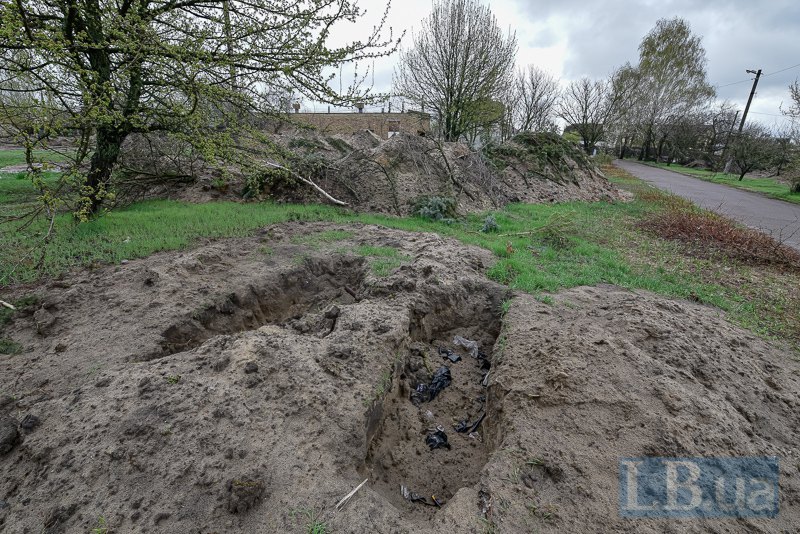
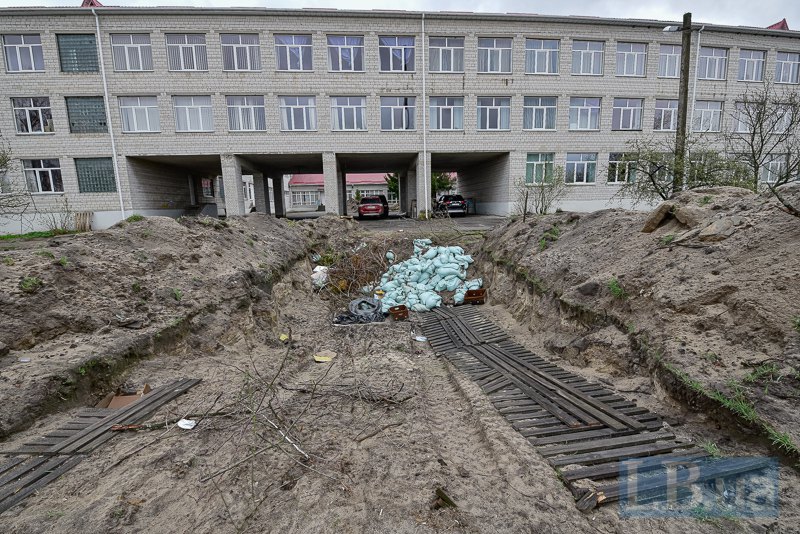
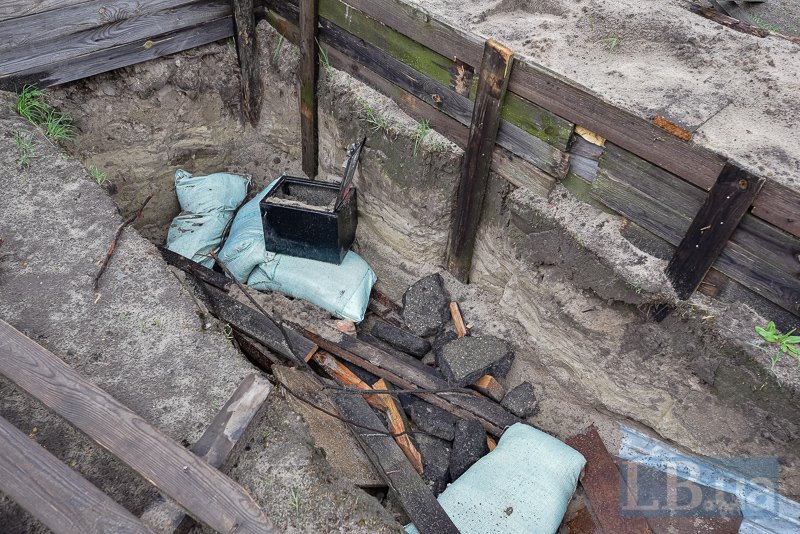
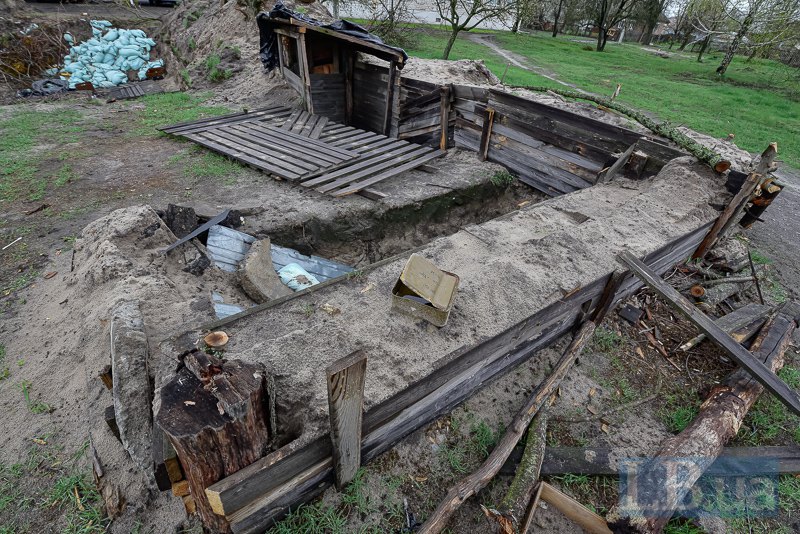
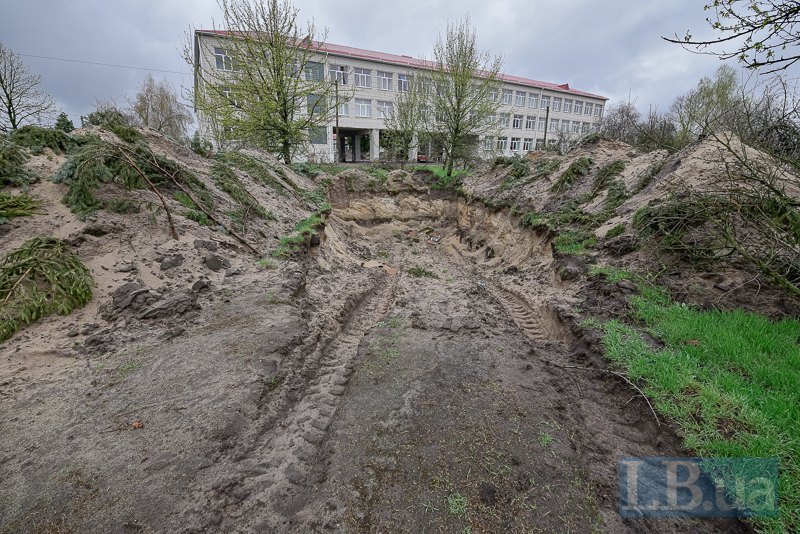
"They were wriggling like worms; they were crawling from everywhere like insects. That's how they were attacking us." We thought it was the end of the world. We were sitting in the cellar with a 9-month-old baby, and then we went out to cut raspberries plants, and they started firing in the air, saying, "If you walk, we'll shoot you," - said Halyna, the school's deputy principal for supply and maintenance. "They shot one family and stayed in their house."
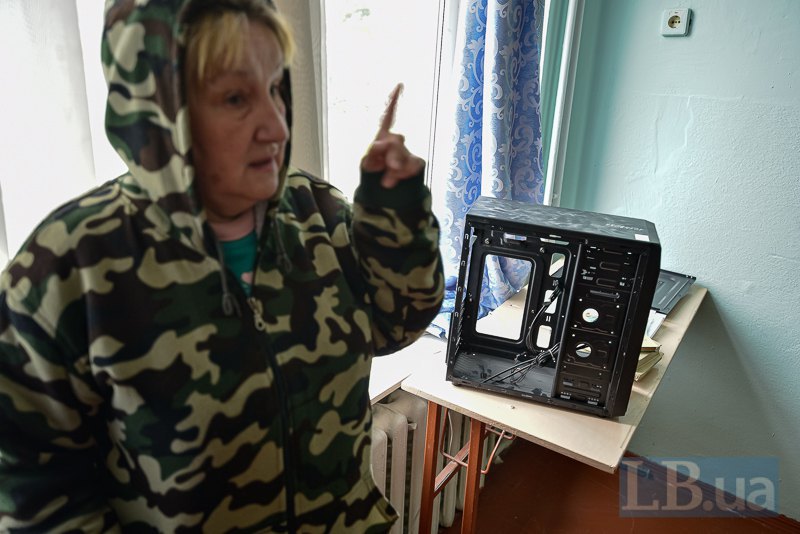
She recalls that the occupiers "buried" their military equipment in the gardens. "The russians were staying in abandoned houses and robbing us. They took bikes, phones, TVs, microwaves, electric kettles from people; they were taking everything they could - says the woman. - There was a conflict between them: the Chechens were staying in the center, they did not have contact with other russians and used to say: "If we have an opportunity, we will cut them ourselves." And later, in the center of the village, we saw a burnt-down house of Chechens. A part of them "stayed there forever." There are different versions of what happened to them: it seems they were playing with shells at a birthday party of one of them, or maybe they got drunk and provoked the gas explosion. Then Novosybirsk OMON came; one could look at their clothes and see their misery. Here we had russians whose mothers and sisters live in the West of Ukraine. All of them were telling the same story: they were put on the alert for the training but were sent here [to Ukraine] instead. In our part of the village, they did no harm, but the situations were different in the west part of the village. The Buriats did not reach us, and in places they reached, they turned beasts. They were cruel. And the Kadyrovtsy can be different: they often performed searches."
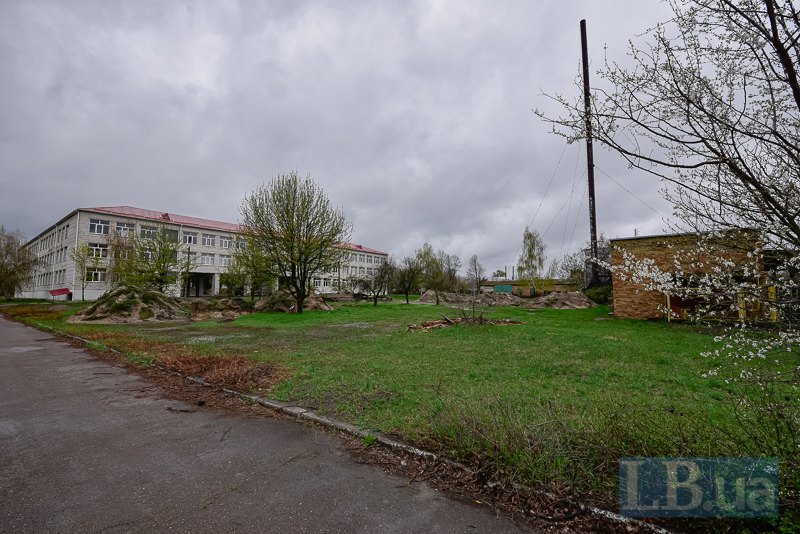
"The russian command that coordinated war actions in Hostomel, Bucha, and Irpin settled its headquarters at the school. They were fighting there and coordinating from here."
On the first day of the invasion, the russians made hundreds of civilians leave the school basement, where they were hiding from airstrikes and enemy artillery. At the entrance to the shelter, on the ground, we see two book pages with the names of russian fairy tales "The Man Who Liked to Steal" and "Ivanushka the Fool." There are a lot of broken children's toys, children's literature, and medicines for cold and high blood pressure everywhere. Nearby we see the New Testament in Ukrainian, school notebooks, and patriotic drawings.
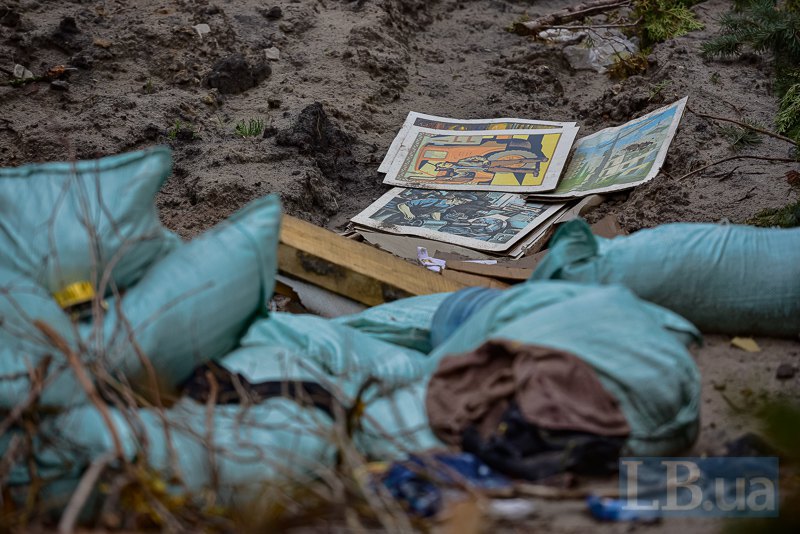
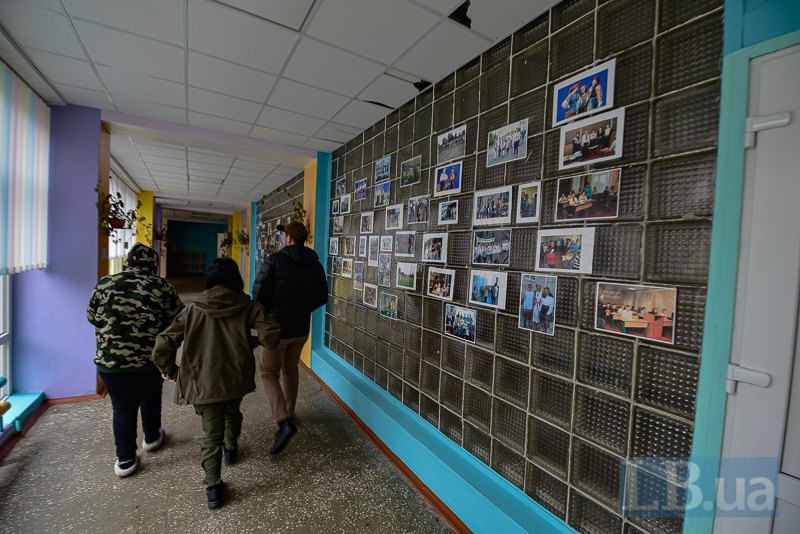
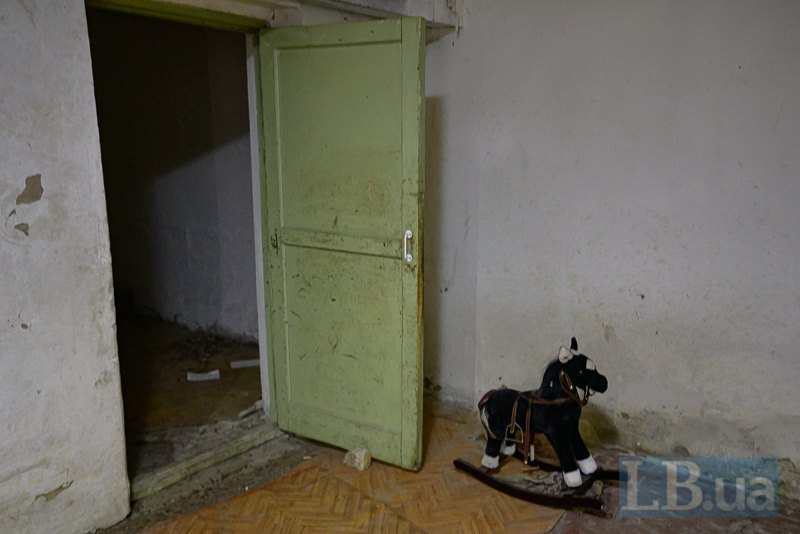
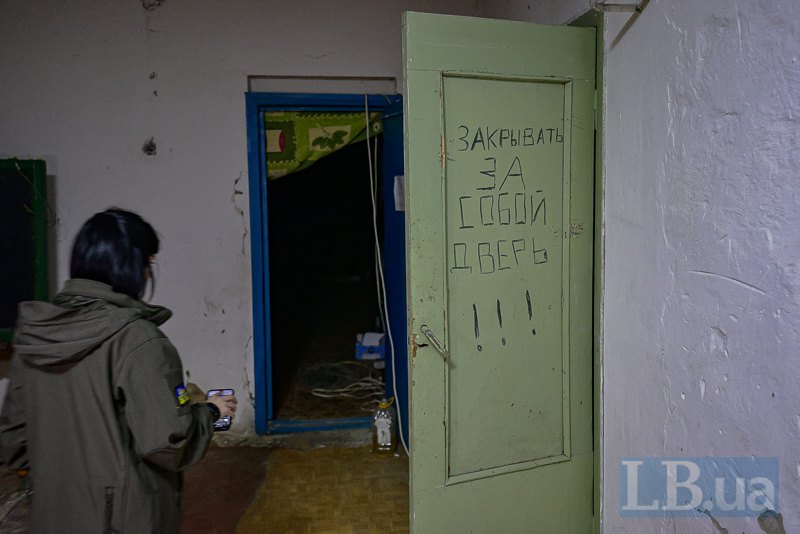
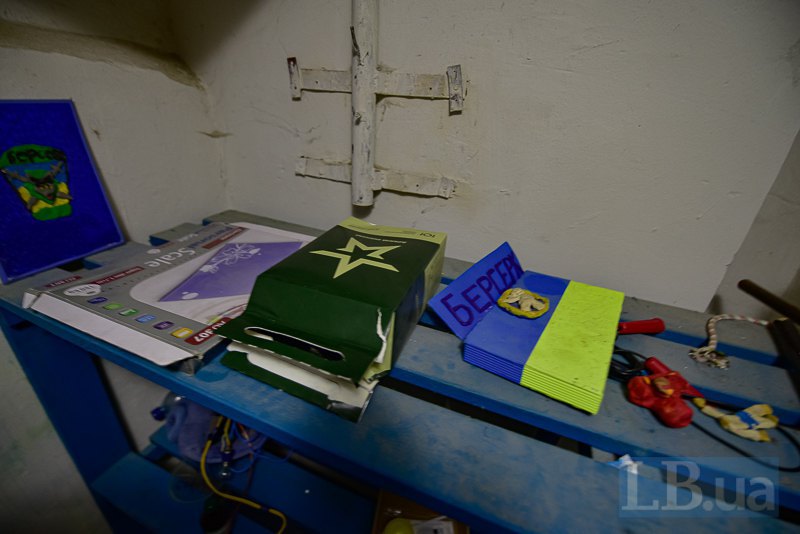
"Both people and katsapy [a folk, alternative names for russians] used to sleep here. People were not allowed to collect their belongings, so the russians lived among broken children's toys," - says Halyna.
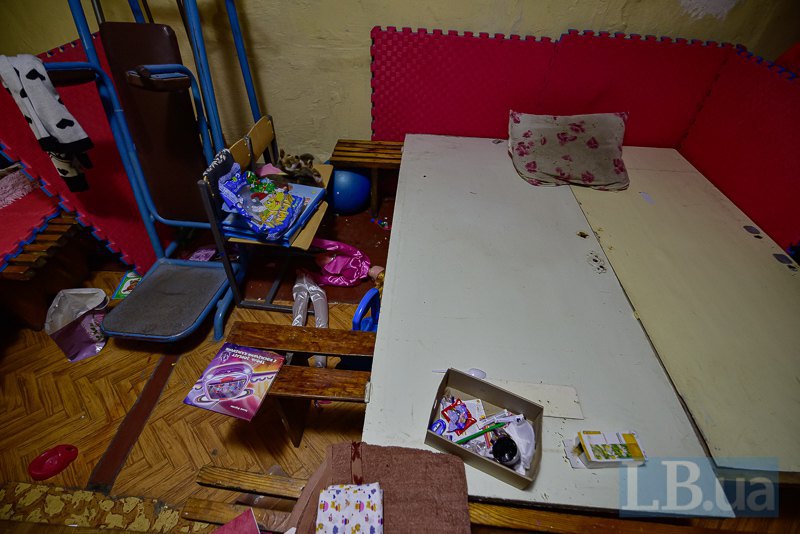
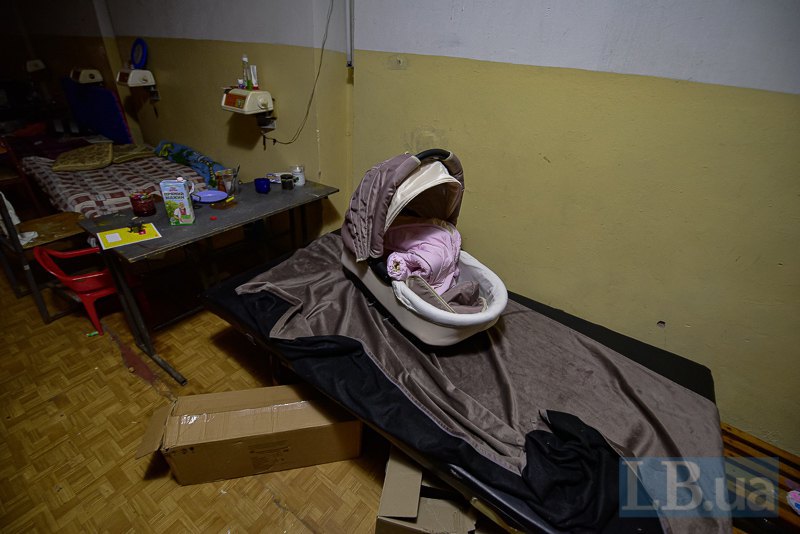
There are the remnants of the russians' everyday life, unsanitary conditions, and dirt on the table. And their field ration- an individual pack of food called "Druzhba narodiv" [Friendship of nations]. The russians not only made the residents of the village leave the shelter but also threatened to shoot them if the school principal, Mykola Mykytchyk, was not turned in. Five officers circled the principal when he arrived and demanded a central server.
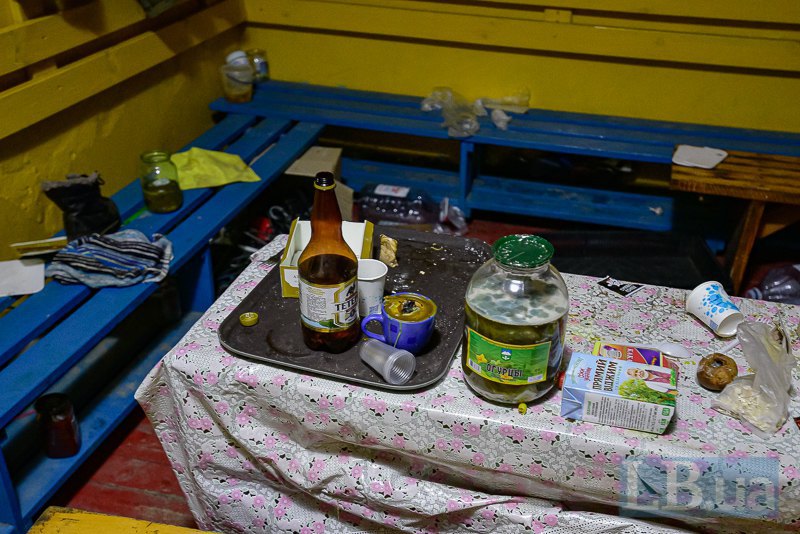
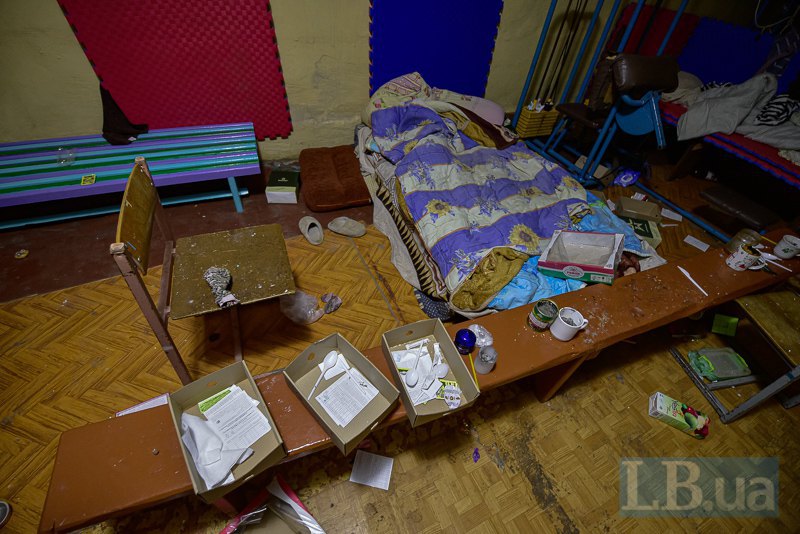
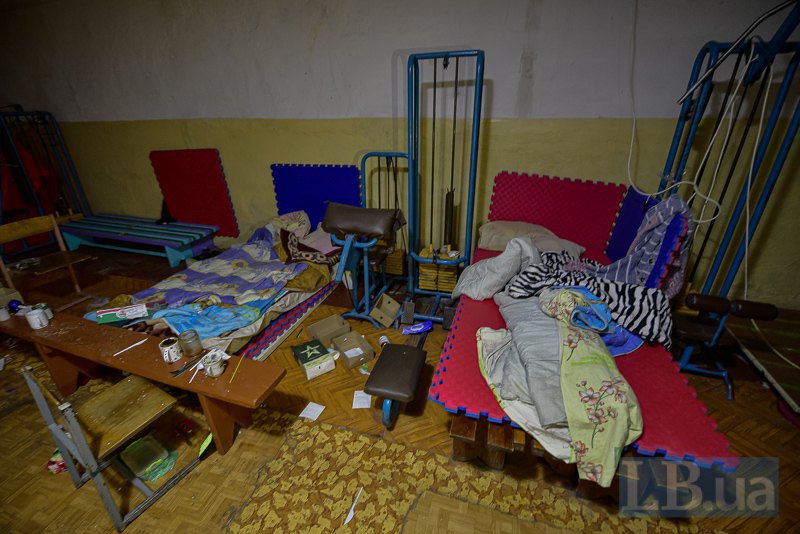
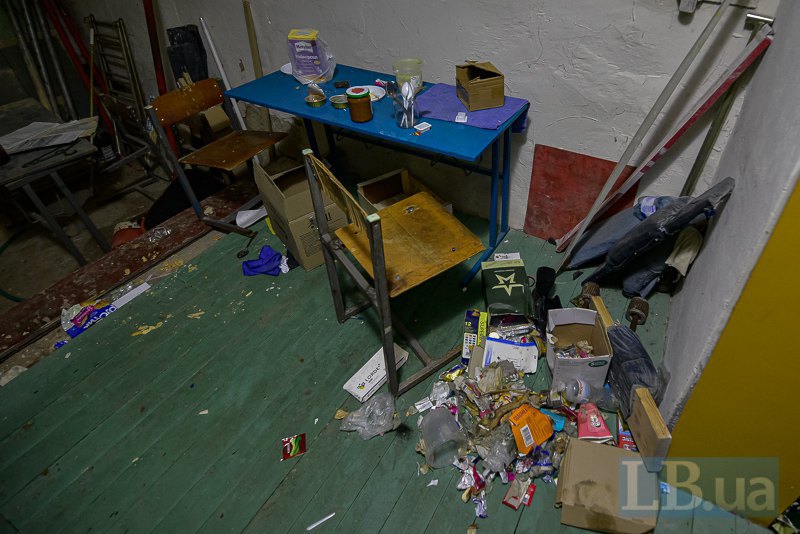
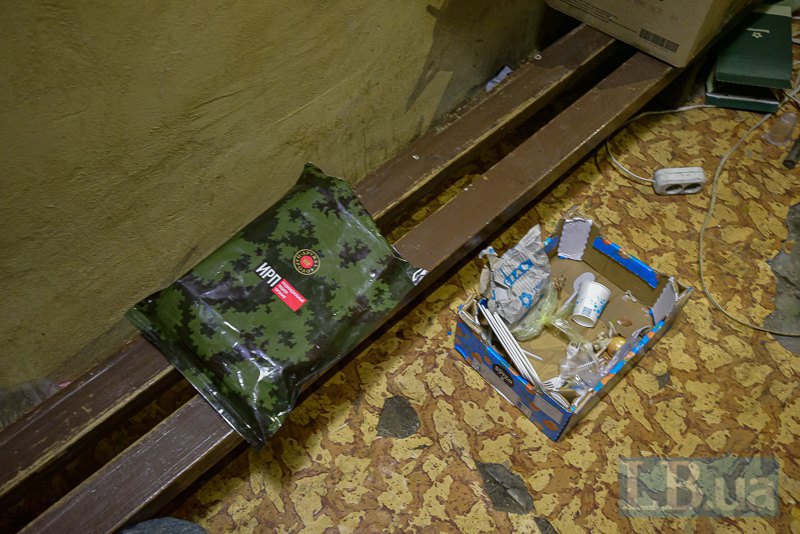
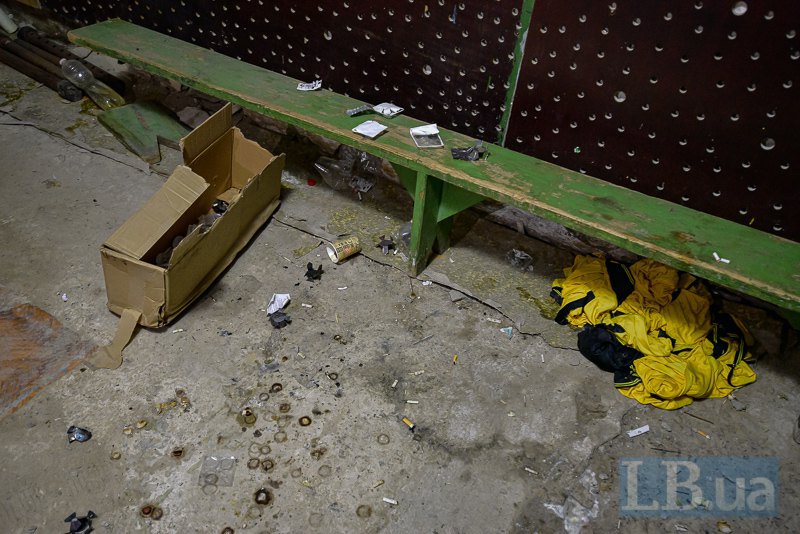
The occupiers understood they entered history "in the most beautiful way," as surveillance cameras at the school captured their faces. As the principal said, he was able to hide a laptop with all the data under his jacket during all that mess - a tour around the school for the russians - and take it with him. When the village was liberated, he handed the laptop over to law enforcement officers.
Mykola Mykytchyk assures that the russian command that settled its headquarters at the school was the one that coordinated war actions in Hostomel, Bucha, and Irpin. They were fighting there and coordinated from here. Here, there were dwelling sites of various units in the village that did not contact each other. Each unit had its headquarters, guarded by snipers.
The enemy records left behind prove that up to 530 russians used to eat here.
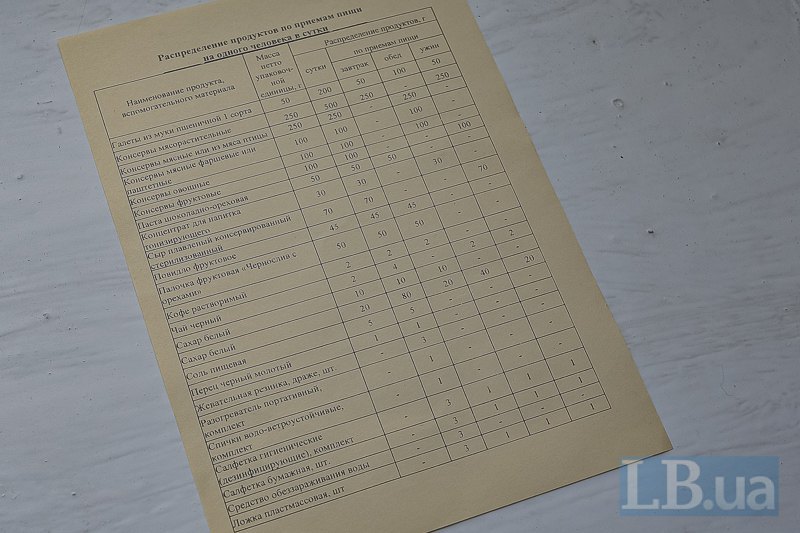
There is still no electricity or running water supply in the school. There is a message on the board in one of the classrooms. In calligraphic handwriting and almost without errors, the occupier wishes the pupils success in their studies, apologizes for the mess, and swears that he tried to save the school. But, of course, it was not without sermons, like, "not to repeat the mistakes made by the elders; Ukraine and Russia are one nation."
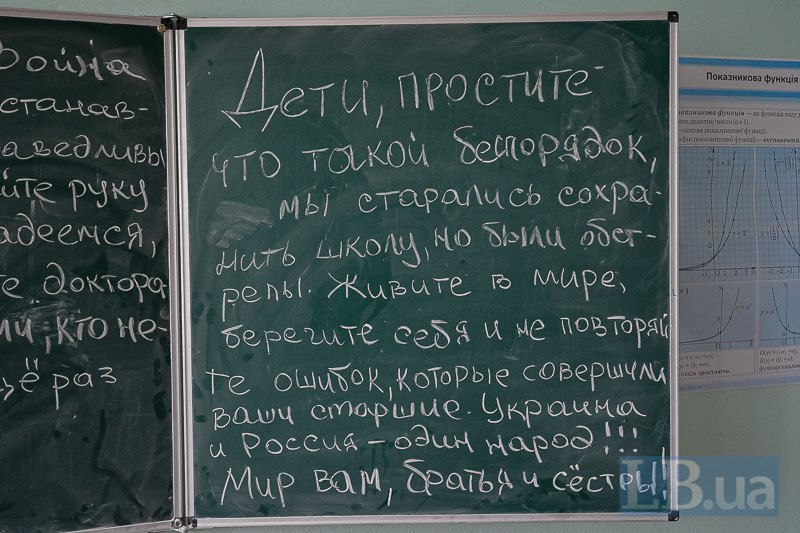
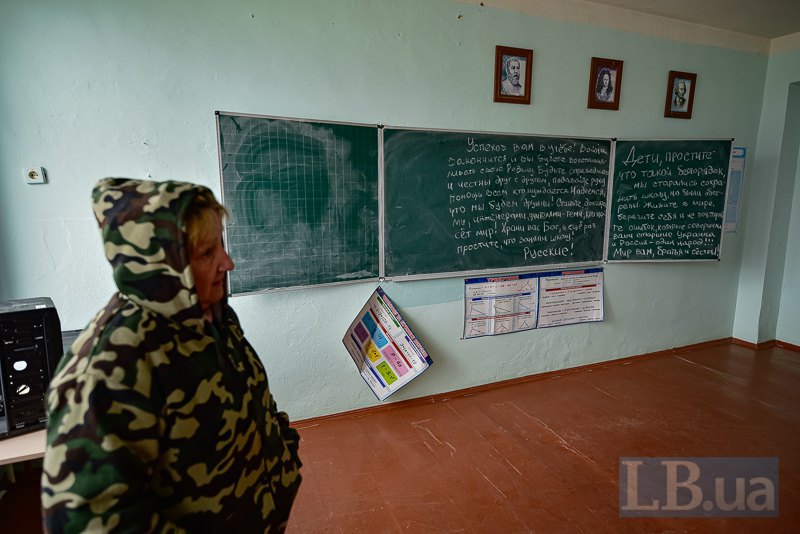
"It takes 5 million hryvnias to restore everything they destroyed. When I went to school, it stank. It seems that the ruscists [russian+fascists] themselves stink that much; it's their entity. They eat and shit in the same place. They stole everything from the school. They took, they grasped everything in a hurry. There are no lamps left in the classrooms. They tore the computers from technology class apart; they stole mainboards, and hard drives, leaving only 51 boxes instead of 51 computers. Why did they break the piano in the assembly hall? They stole the equipment from the school canteen; we recently rebuilt it. A lot of expensive alcohol bottles were left on the floor. Savage beasts! They left a depressing, ugly feeling. Animals are living beings with concepts, and these cannot be called animals or orcs. Because orcs have at least some idea," - says the school's principal angrily.
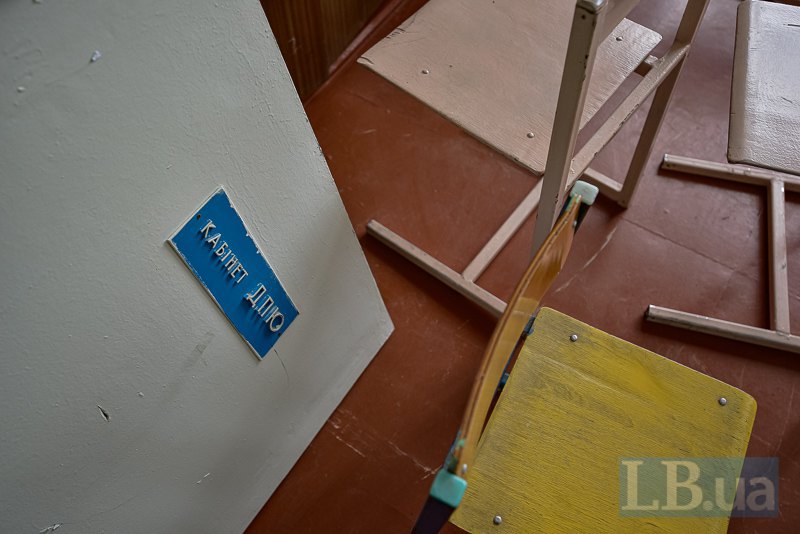
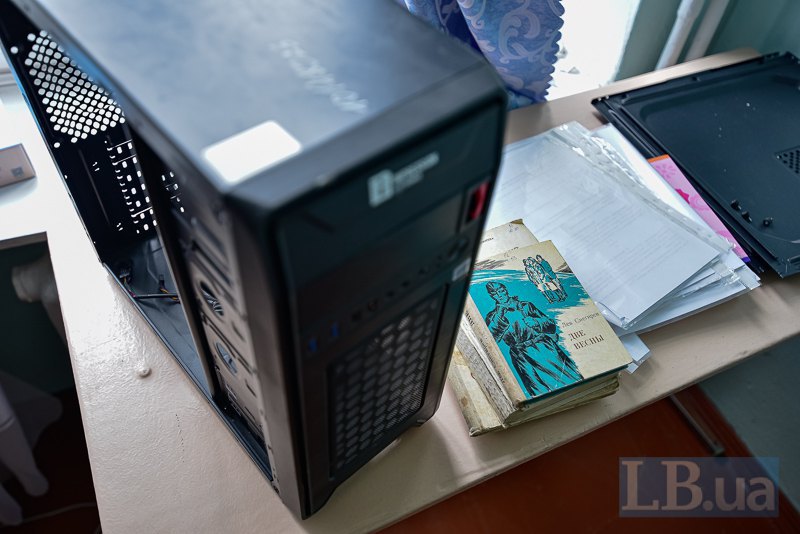
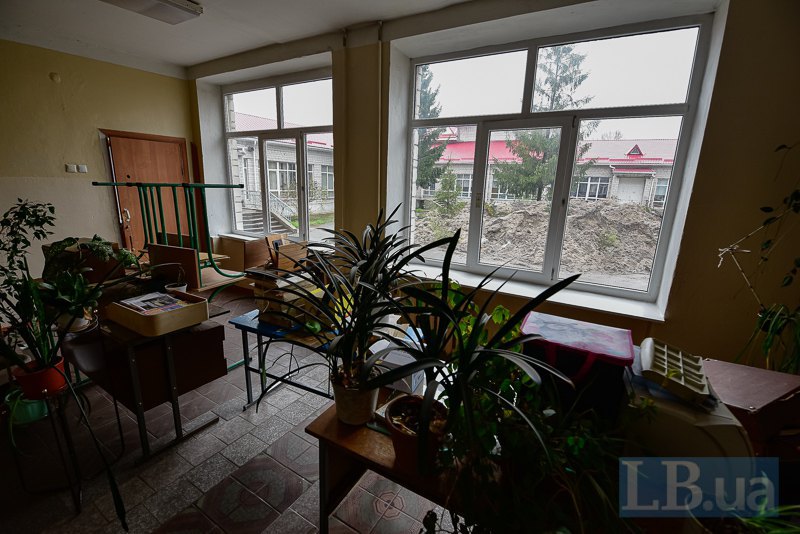
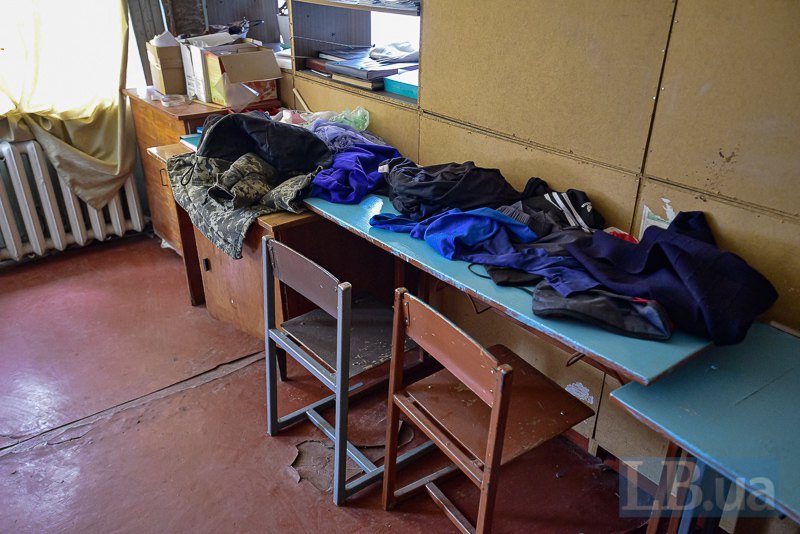
"Do not vote for Zelenskyy, vote for Putin"
His colleague, Halyna, said that the russian military had always tried to agitate the civilian population and had told them that Ukraine had surrendered and asked for mercy.
"Once, the occupiers said, 'Your country had thrown out the white flag.' We kept silent, although we knew that this did not happen. We had a radio in the cellar; we knew what was going on and where it was going on. But we lied to them, saying that we did not know anything. The russians asked, "Do you have a radio?" We said, "Oh, we're so stupid that we don't have phones or radios." The russians also agitated: "Do not vote for Zelenskyy because he is a clown, vote for Putin." And the godmother of my child answered them: "Well, there is no such surname in Ukraine…" And they were constantly looking for an alive Bandera. We asked them who Bandera was. And they did not know. My child's godfather had a portrait of Stepan Bandera and a flag of the Pravyi Sector [Right Sector]. They saw these things but did not take anything. They don't even know what Bandera looks like," - said a school employee.
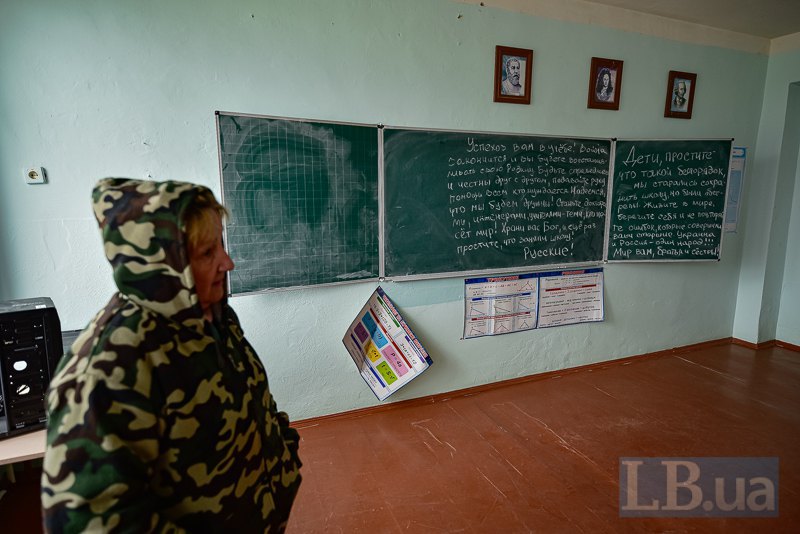
And in another school basement, the enemies kept prisoners: those who participated in the Anti-terrorist operation in Donbas, local activists, and young people who violated the curfew set by the occupiers.
As Halyna says, people were taken from neighboring villages Borodianka and Klavdiyevo; the russians bet them in Borodianka, in the woods, on the way here. An FSB officer with the nickname Niemiets interrogated everyone. She says the russians had a handwritten list; they were looking for four locals who participated in the Anti-terrorist operation. Some of them were never found, one was given two hours to take his things and flee the village, and another one was taken as a prisoner.
We are not allowed into the basement where the prisoners were kept because the officers of the Security Service of Ukraine collect biological samples of the occupiers and document their crimes.
In the schoolyard, we see a sports ground that survived. Repairs are being done nearby.
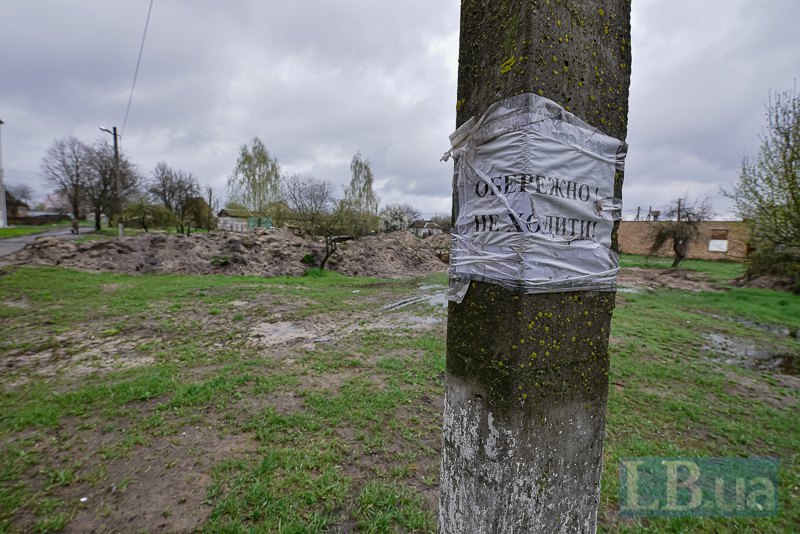
"They did not allow children to the sports ground; instead, they took our balls from the gym and played themselves; they were also riding push scooters. People are repairing [pipes] over there because the russians put their toilets with holes, like in "katsapuria" [a folk and alternative name for russia] in the street, and damaged people's sewers," - commented Halyna.
A little further, we see a young family looking at the aircraft shelter and rubbing a large skinny dog behind the ear.In the first week of the full-scale offensive, they managed to leave. They said that Tuzik was afraid of shelling. Then the owners released him from the leash; he lost a lot of weight during the occupation and now found his owners again.
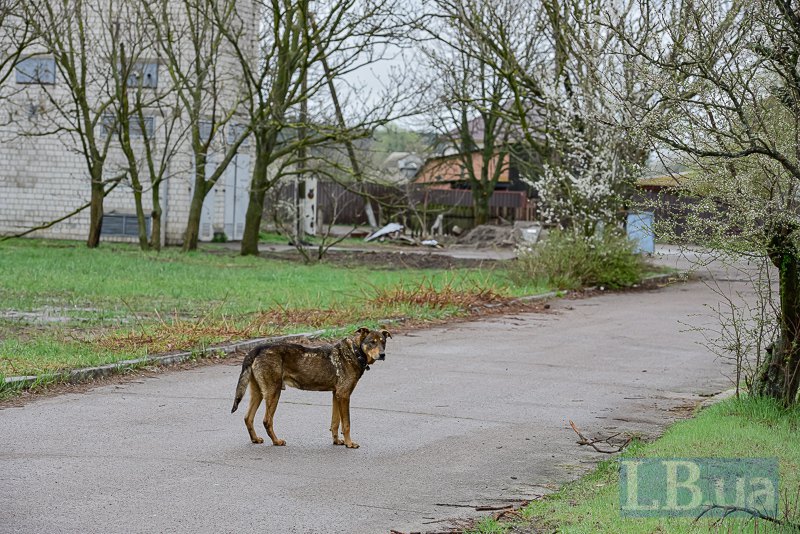
The couple is going to school to pick up their child's textbooks. The woman says that, luckily, nothing really bad happened to them.
"We were running out of food. I could not feed the dog, and he is a living thing… We needed to leave. My daughter was terrified of the aircraft. The russians were hiding behind the people. It's a pleasure to look at our military, handsome men, and on the other hand, these teeny-tiny … You look at one of them wearing sneakers, his pants are made of thin bad quality oil silk, glued with the tape to legs and think: "And you, scumbag, came here to "liberate" me?" - she says indignantly. - When the Chechens were staying here, women and girls did not go outside. I took off my daughter's silver jewelry and put it in my pocket. Because I thought he [the Chechen occupier] would not care who to rip off the jewelry from, and if I bury it, the dog will pull it out. It's like one long stupid dream."
She constantly smokes while talking. Her hands tremble all the time.
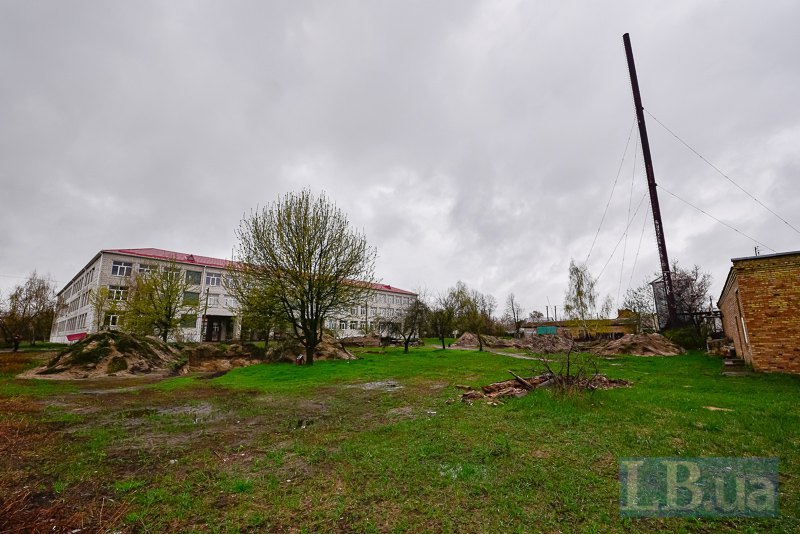
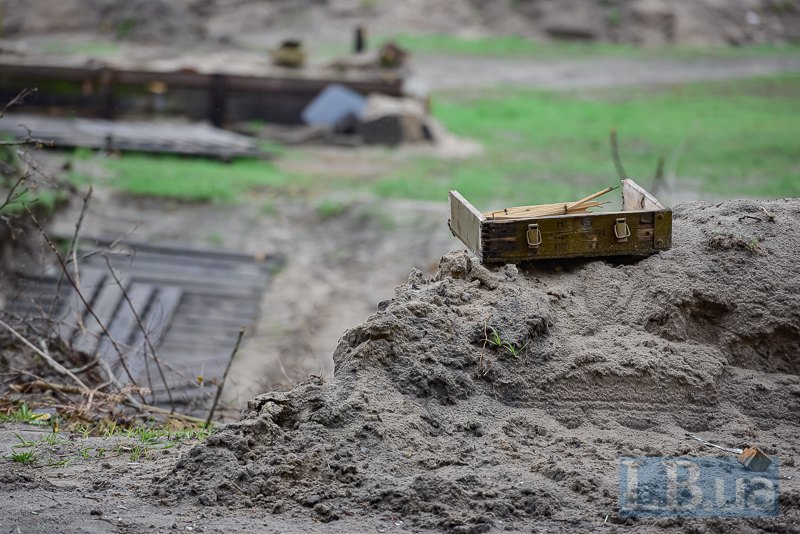
"They directly told me that they came for the 'alive Bandera'
The russians wanted to deport one of the locals from Ukraine. They called Viktor Porkhun, a local resident, a member of the political party "Svoboda," and a teacher at the Katyuzhanka Technical College "Alive Bandera." The enemies threatened to deport him to Russia or Belarus because they allegedly were promised to receive a million rubles for "Bandera."
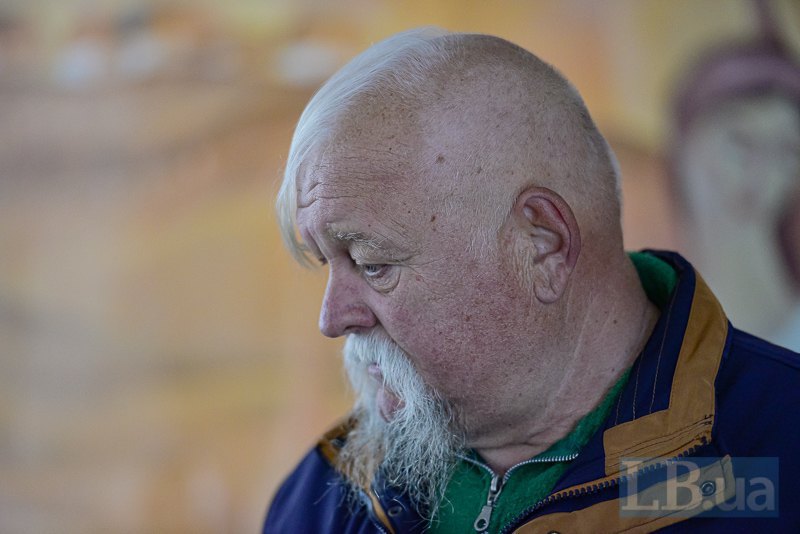
The FSB repeatedly searched and interrogated the man and then put him in the basement. Viktor told how he managed to beat the enemy psychologically:
"One and a half weeks after the full-scale invasion, the FSB occupiers came to me. They entered my apartment and asked for my surname. They took out their records and confirmed it. It means the occupiers knew where to go. They searched and interrogated me for four and a half hours and found a book called "Banderivski chytannia" [Bandera Reading Sessions] and a flag with the phrase "I am a banderivets, and I am proud of it." The FSB officer from the Leningrad region with the nickname Niemiets said: "You, old man, is the one we need."
"They took me out of the house and took me to the well. They hold me upside down there. I was holding the book "Banderivski chytannia". They started to fire in the air. At this time, two neighbors came to get water and saved me. Patriotic teacher Nina Vovchenko calmed the situation down, and her sister lost consciousness -recalls Viktor. - Then I was taken to the house, interrogated again, and psychologically pressured. They searched everything, even touched lingerie. After the interrogation, they said, "Shall we go to the basement?" And I said, "You are the boss." They replied that a 42-year-old woman was staying in the basement, so it would not be boring. And then they just left. I stayed home and thought about what to do. Should I run away? I thought of going to my relatives' place to hide there, but then I decided that whatever happens, I would stay."
And in the morning, the man was taken to the school basement.
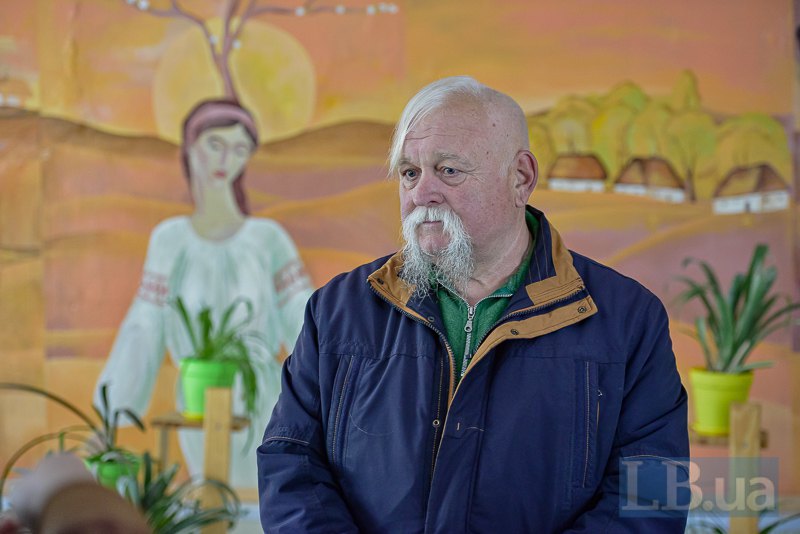
"Nobody came to see me there for more than a day. And then Niemiets came and said, "Well, old man, let's get undressed?" I felt that I would die or be deported to Russia or Belarus. He threatened: "You are a valuable prisoner. They will give a million rubles for you, an alive banderivets." They thought I was like that. And on my left shoulder, on the background of a red and black flag, it is written on the Trident "Glory to Ukraine! Glory to heroes!" But it happened so that I outplayed him psychologically, even though he was with the FSB. How? With my invalid of war ID. He thought I participated in the war in Afghanistan. So I just needed to prove it to him because the ID is dated 2020. He told me: "You bombed Donbas." I answered: "No, although you have a higher education and are from the FSB, you were probably taught very little in school." I told him about our legislation. He took my ID and left. In three hours, a soldier came, untied my hands, and said: "Today Niemiets is good." I was released, and I disappeared from the village for three days because they could change their mind. This was a test of strength and intelligence in my life," - said Viktor Porkhun.
The occupiers pressured Viktor accusing him of allegedly conducting anti-russian propaganda and educating the younger generation with the Ukrainian spirit. The man is convinced: the local informant did a part of the job in this situation.
"Unfortunately, somebody from the village provided this information to the russians. It happened even though, with my patriotic education, I only did everything for the well-being of our Ukrainian nation, all the citizens, regardless of their views. Because we are all Ukrainians in our God-given land, this is our dear Ukraine. I was and will remain as I am. I will continue to pursue state policy. No one will change me for the rest of my life," - the teacher ends the conversation.
"Apparently, everyone in the village happened to be at a gunpoint"
His colleague, Marina Petrova, a master of industrial training at the Katyuzha school, was also under occupation all the time and looked after the school, while more than two hundred Kadyrov’s followers, Buryats and russian riot police took over the land for more than a month.
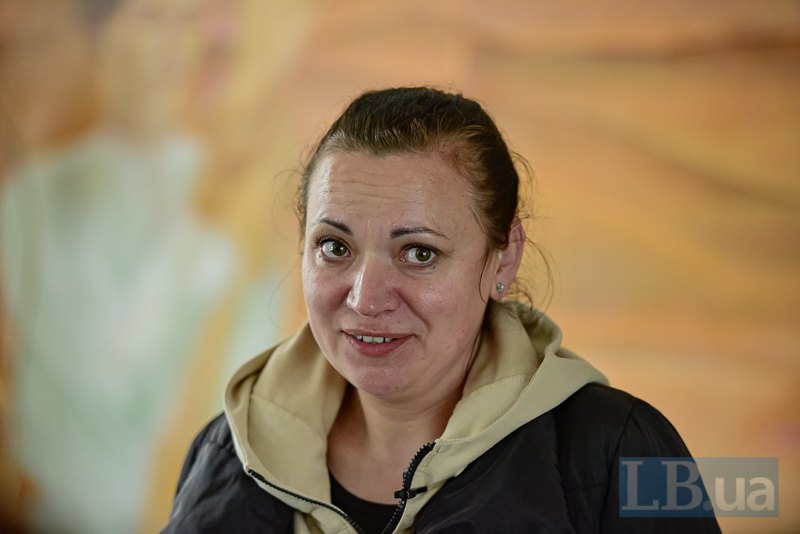
The school became their administrative building, the command rested here in rotations - a week after a week. Ordinary soldiers lived in the dormitory. Everyone said that our president was to blame for the war, and they came with the good. They offered to take us to russia and said that our land was their land. "We were scared. Apparently, everyone in the village happened to be at a gunpoint. After the Kadyrov’s followers, the Buryats came, kicked in the doors, stole machinery and equipment. Nobody respected our property. They got drunk, turned on the music, felt like hosts. They lived in the mud. They lived in the dining room, two bathrooms nearby, but they went to the chef's office, put the bags in the corner and relieved themselves. They did not understand that bathrooms can be used,” - Marina says.
"They are so clumsy that they left documentary evidence against themselves"
Even when they fled from here, the woman adds, they were careless with their valuables and left incriminating documents. It is currently being handled by the law enforcement agencies.
Obviously, this is russian handwriting, let’s remember what people told us about the vast amount of evidence of russian aggression against Ukraine that the occupiers left at the first point of our route - the school.
"They are so clumsy that they have left documentary evidence against themselves: copies of their military tickets, contracts, refusals to serve, lists of names with signatures and seals, proving who is a private and who is a colonel," - says the director.
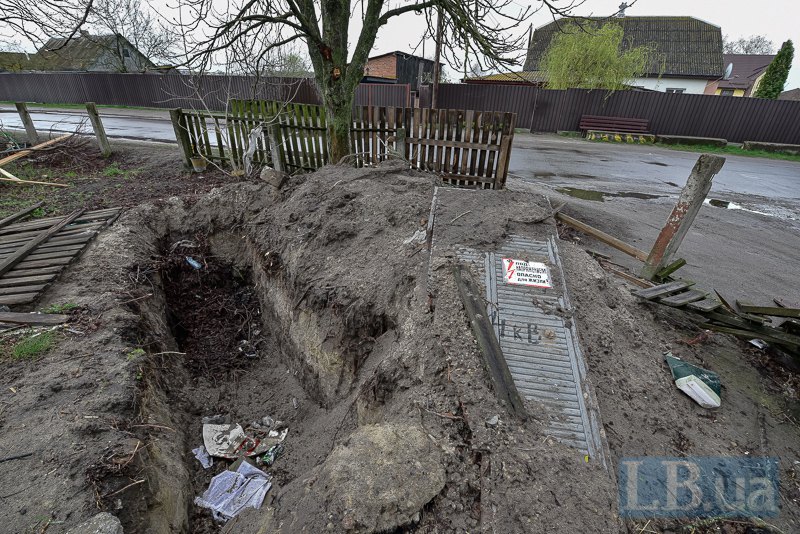
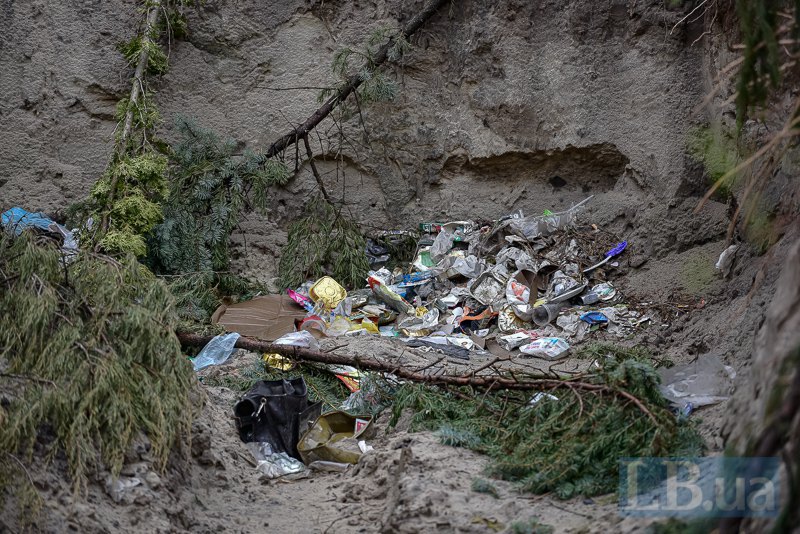
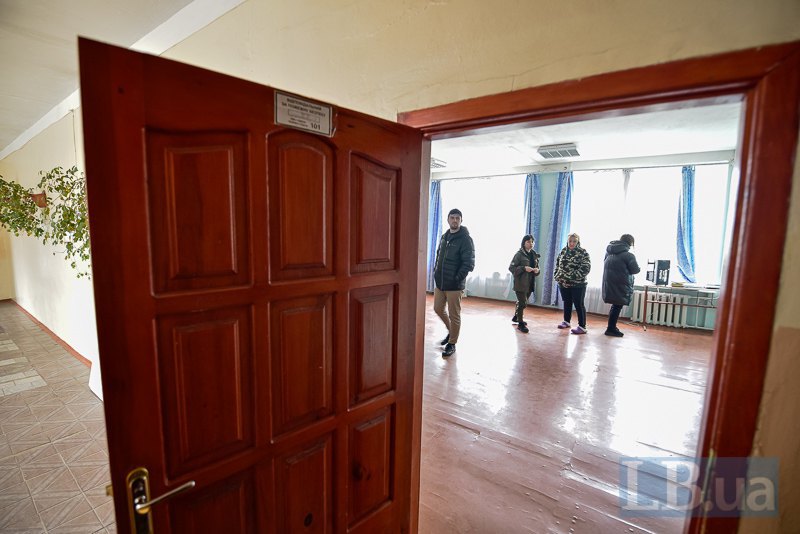
The deputy director for household also said that there was a "mad nonsense" in the russians' diary: records of the date when the occupiers who came to Ukraine, that they had been raised on alert, as if for the military trainings, that Kyiv would be taken in three days. They also wrote their fantasies about how the war would end with their victory and what would happen next.
But everything happened differently. According to Ms. Halyna, the russians who were based at the school quickly got up at 4 am on March 31, dropped everything and left. They were in such a hurry that they did not have time to mine the village as they usually do.
"Helicopters landed in the schoolyard near the sports ground and took away the officers. The "corpses" from Gostomel were also packed: a loaded KAMAZ [truck] was coming, they opened the trunk and loaded the dead onto helicopters. Heavy machinery was hauled there on tow trucks, and it went back on its own. When the russians fled, they took everything: generators, bicycles, a doghouse, a manure cart, blankets, pillows. Carpets were laid in the armored vehicle between the cabin and the car body. We later read that the car with the carpets had burned down and laughed a lot. There was grief as well. Three children were fired at in nearby Savinka: an 18-year-old girl was killed and two boys were injured. One man was shot in the leg and bled out. Our guys from the Armed Forces of Ukraine did not fire on the village, because they understood that there were 4.5 thousand locals. And the enemy did not have time to kill us all, because they fled quickly. They came in columns of 350 units to Kyiv, and when they came back, there were 30-50 units. The next day our Armed Forces passed by on the tank - there was joy and shouting! On April 19, we resumed distance learning. We will rebuild the school, we will do everything. The main thing is that they don't come again,” - says Ms. Halyna.
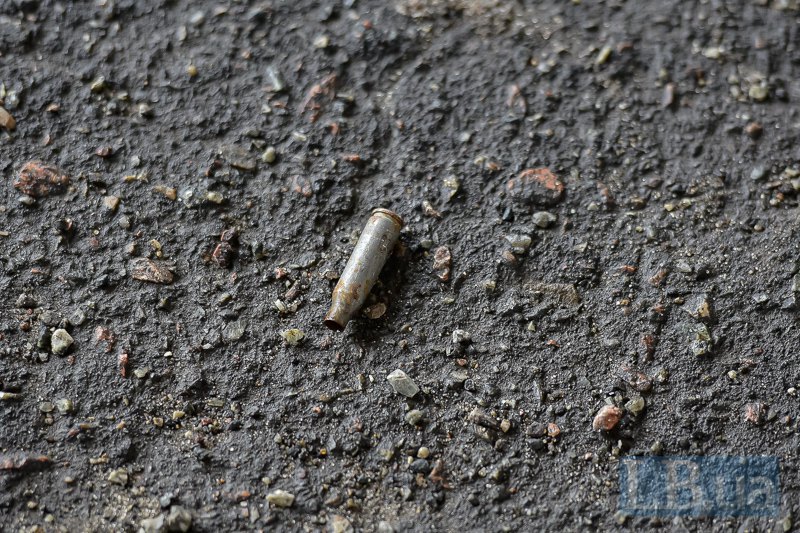
"I took a crowbar, knocked out the lock and told them to run along the rabbit trails"
Already in the village of Dimer on the way back we came to the territory of a small metallurgical enterprise, where there was another russian headquarters and a torture chambers, well-known among the local. The russians occupied the plant on February 24.
On the territory - broken, sometimes covered with rust combat and civilian vehicles marked with "V". Here, the military police of the russian Ministry of Defense and the airborne troops of the russian federation repaired equipment, because a large repair shop used to be in this place. FSB [Federal Security Service of russia] officers were sitting in the office. The workers also said that from 15 to 30 prisoners were interrogated in the compressor station of the plant, near the shop.
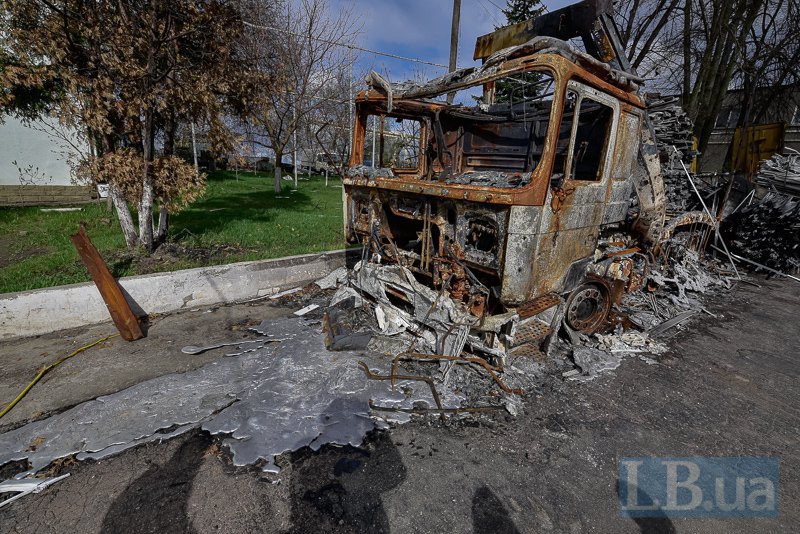
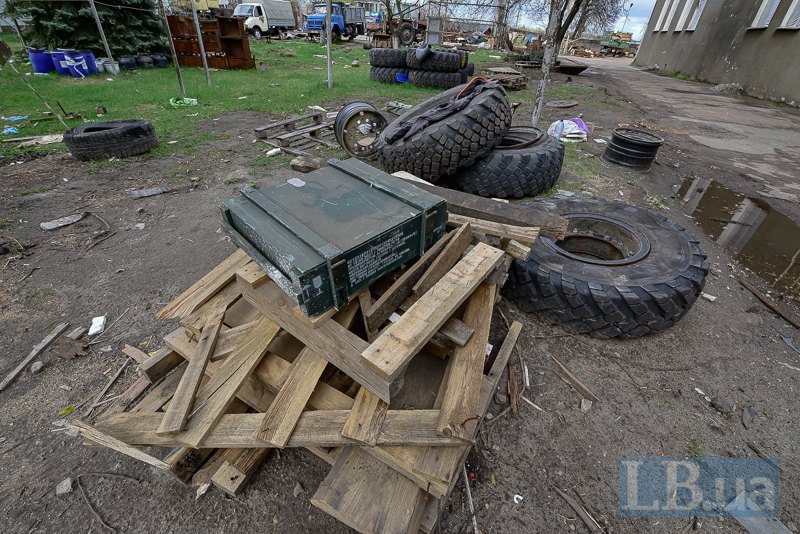
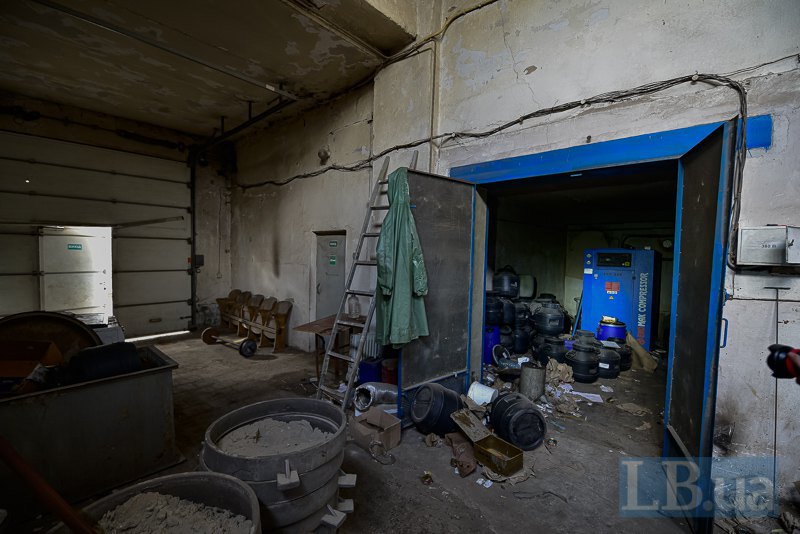
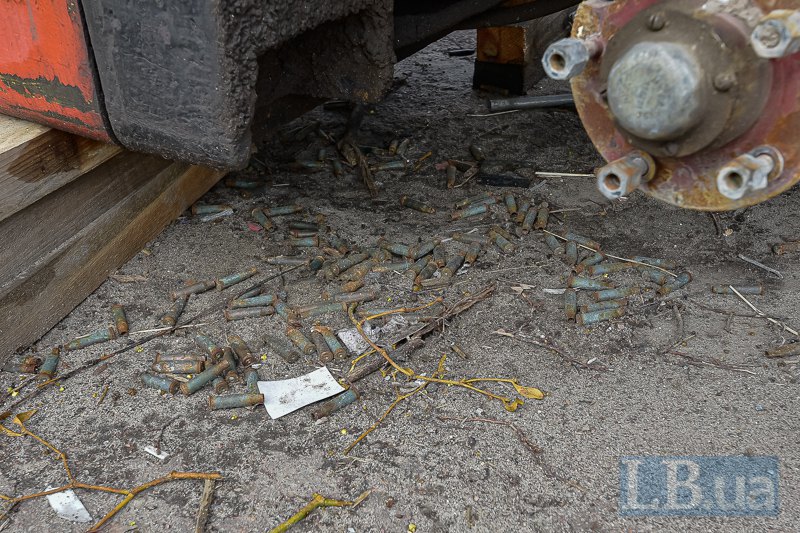
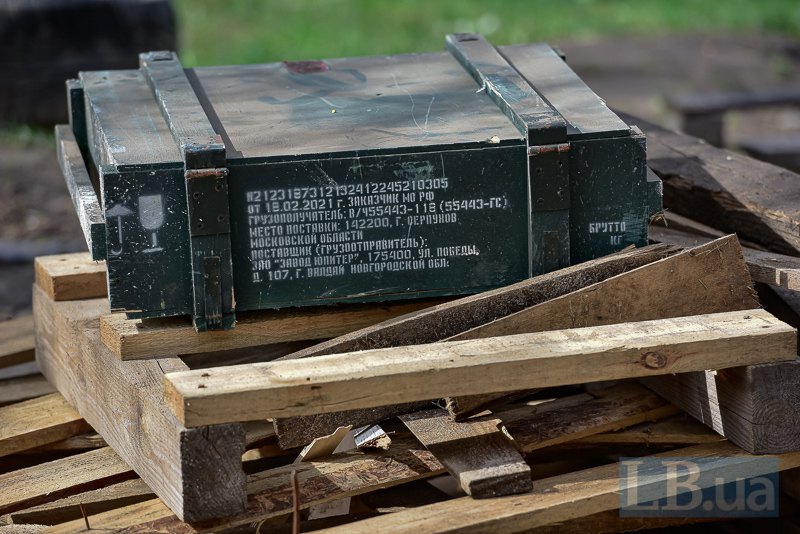
On the ceiling of the room we see traces of two shots from a firearm. On the walls there are notches by days regarding the number of people held captive.
Vladislav Zhukov approaches us. He has been working at the plant for 10 years. All the time he lived in the wagon, neighboring the occupiers. He says that at first they thought he was russian, because of his russian surname and russian language, then they didn't hurt him because he knew a lot, and then they didn't shoot him when they fled, probably because they were in a hurry.
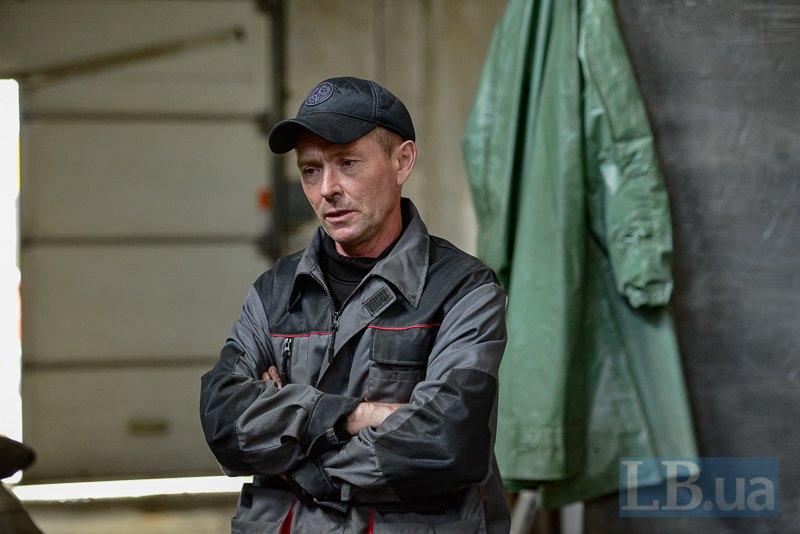
That was the man who one day released 15 civilians from captivity. Despite the fact that he was denied access to the shops.
"I saw the prisoners being brought in. The FSP servants first interrogated them, and then led them here. Then they interrogated people right here where we’re currently standing. They were beaten a lot. There was even a man with a shot in the arm. But people were not killed here. I let the last 15 people go. This happened when two russian command and staff vehicles left. There was no one on the territory. I saw a lock on the door and asked if there were people. They replied they were there. I took a crowbar, knocked out the lock and told them to run away while no one was around. Among them was an elderly woman. They asked where to go. I advised to run on rabbit trails [small trails and paths]. I don't know if everyone got away, but some survived. It turned out that I released them when the Russians were still in Dimer. When they learned that the prisoners were gone, they gave up, took away the batteries and prepared to leave. The russians were in a hurry, because after their munitions store exploded, they had nothing to use for the fight here, ”said Vladislav.
He recalls that there was a lot of broken equipment that the russians were trying to gather together after their disappointing battles with the Ukrainian military. The man leads us around the territory and shows us without emotion where the repairmen lived, where the occupier's operators were, where the FSB servicemen were stationed.
"I do not know why I was not shot while they were leaving. Maybe because they thought I was "russian", even though I am from Turkmenistan. I have been working at the plant for a long time. What would they want of me? Hardworking, and everything. I have been speaking russian all my life, I have been liveing in Ukraine since 1994 and I have not seen a single nazi here. But they have their own propaganda, how can one prove something to them?” - Vladislav Zhukov wondering before we said goodbye.
He adds that the occupiers in Dimer had their headquarters in a neighboring building - on the territory of the plant for the production of metal-plastic systems "VIKNALAND".
From afar, we notice traces of numerous artillery hits - our troops knocked out the enemies. We go inside the room and feel the stink. Finally, the words of the school principal of neighboring Katyuzhanka become clear, how it feels when "the russian spirit stinks."
Something we have not seen in the Russian parking lots before: stacks of newspapers "Krasnaya Zvezda" for March 9 and 11. In the office of their command on the table - Ukrainian alcohol, DVDs of the once popular in russia low-grade series "Saboteur" and, apparently, taken from the local women silver rings. And on each bottle, cup, glass - traces of fingerprinting to identify criminals of the aggressor country. The time will come - and Ukraine will find every criminal.
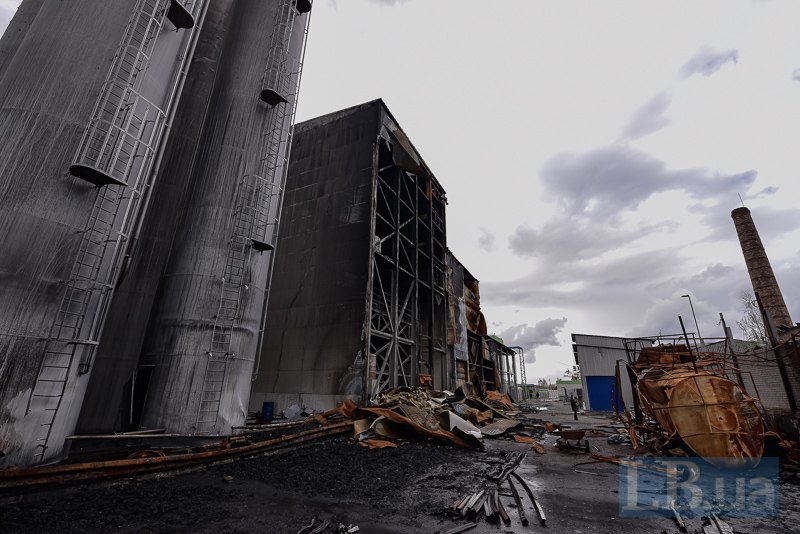
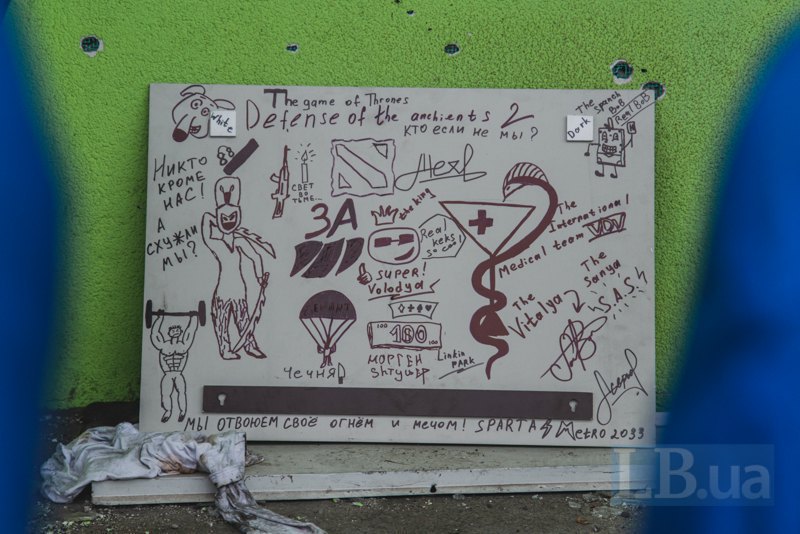
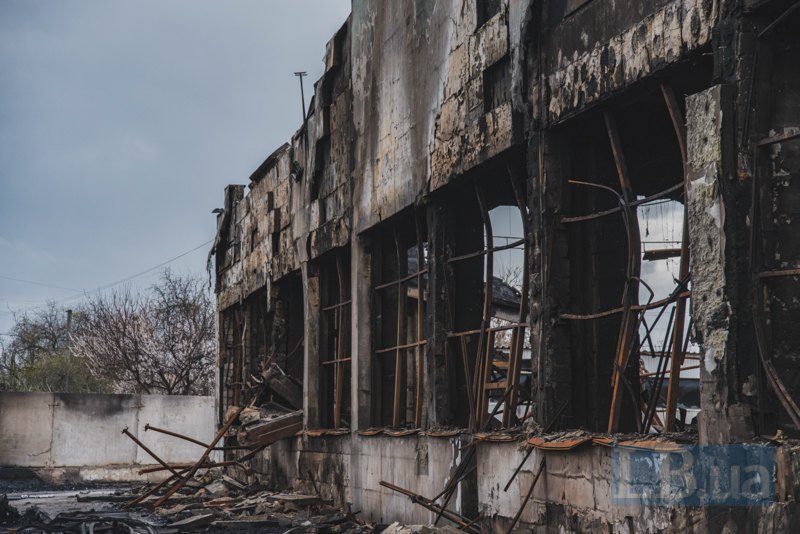
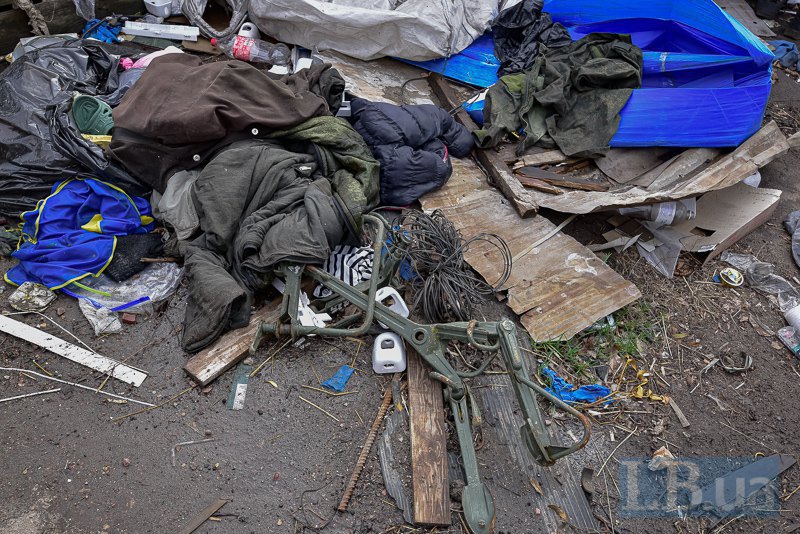
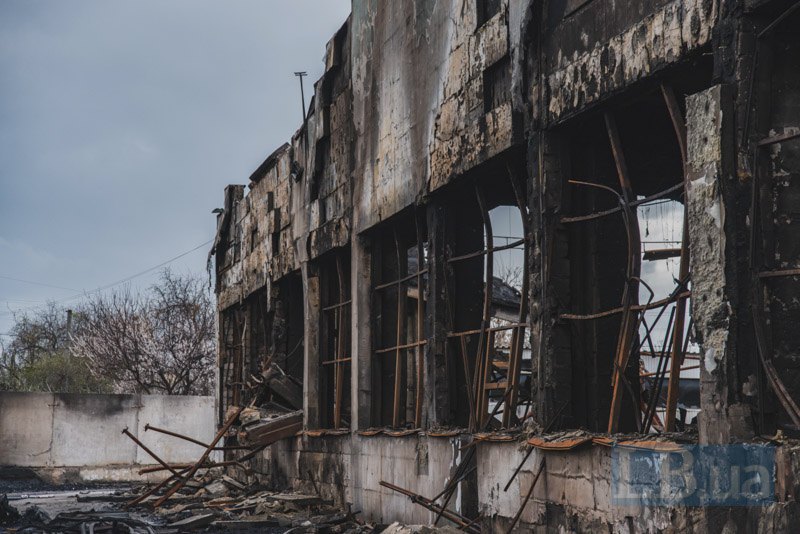

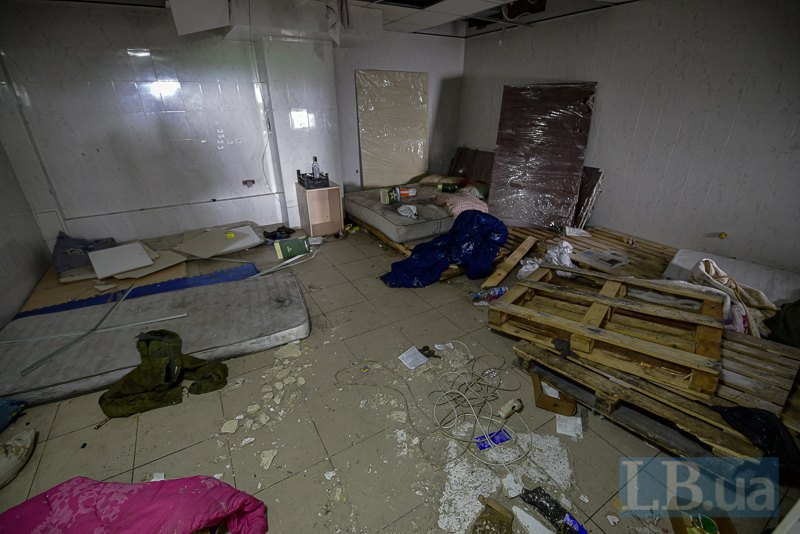
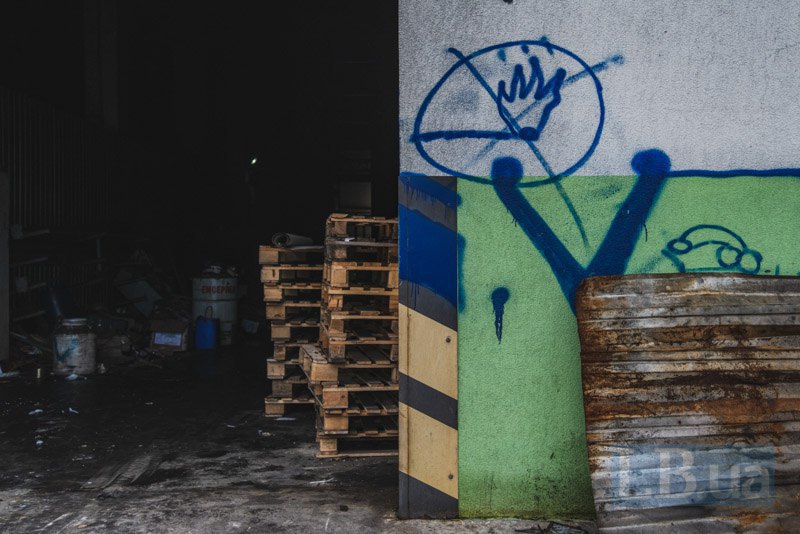
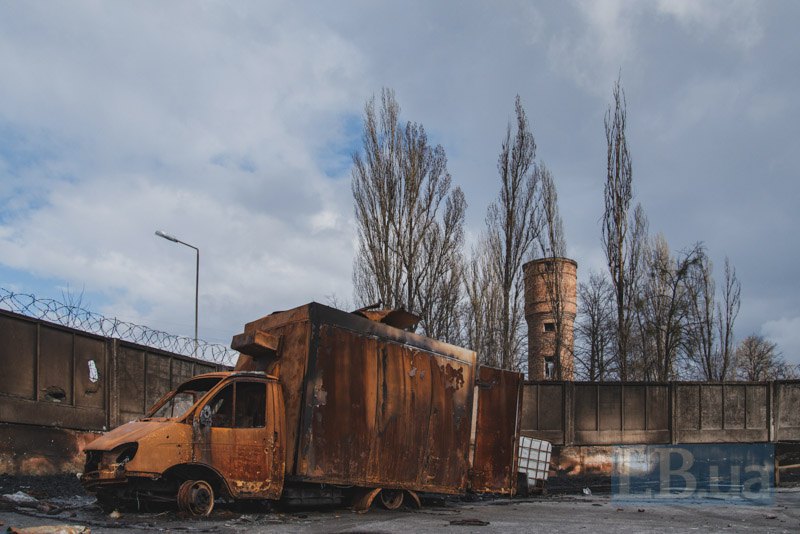
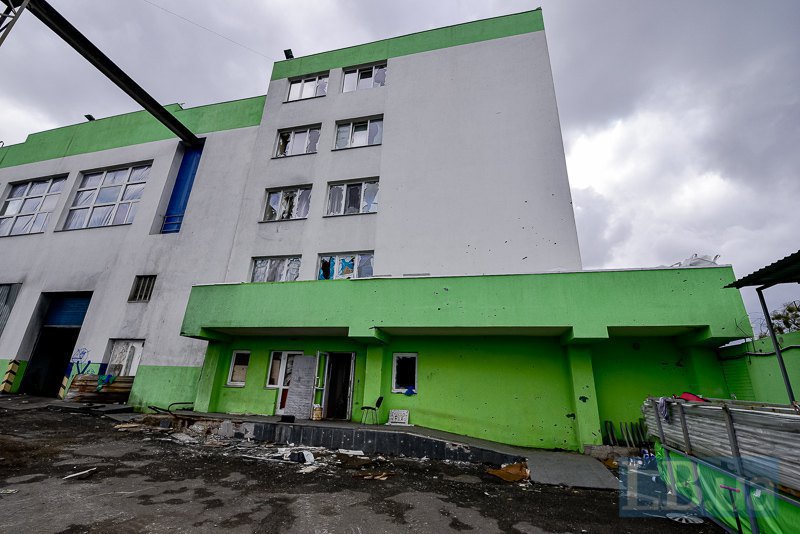
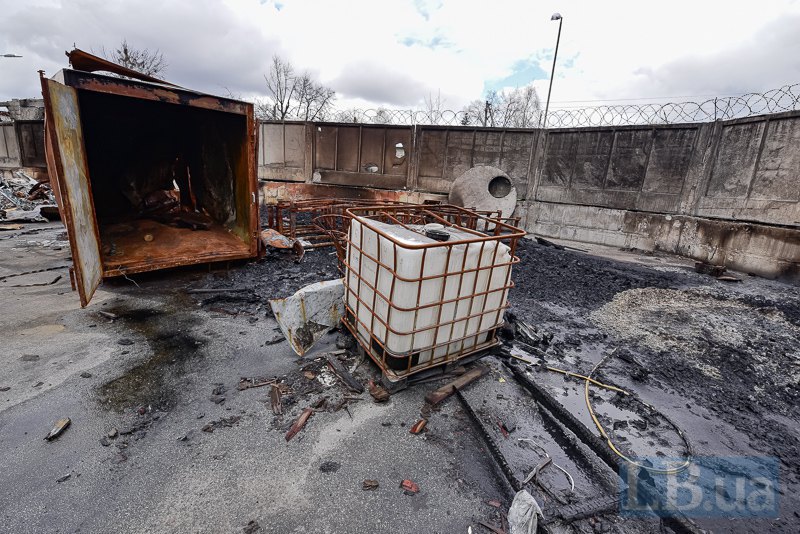
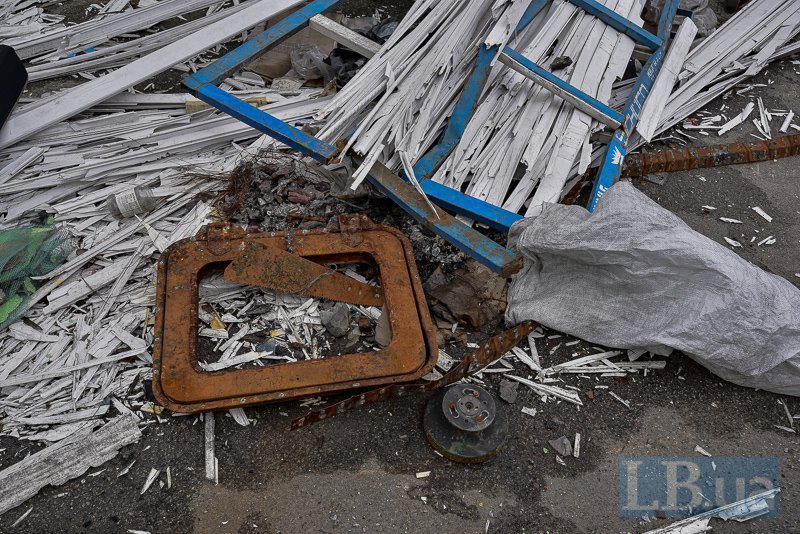
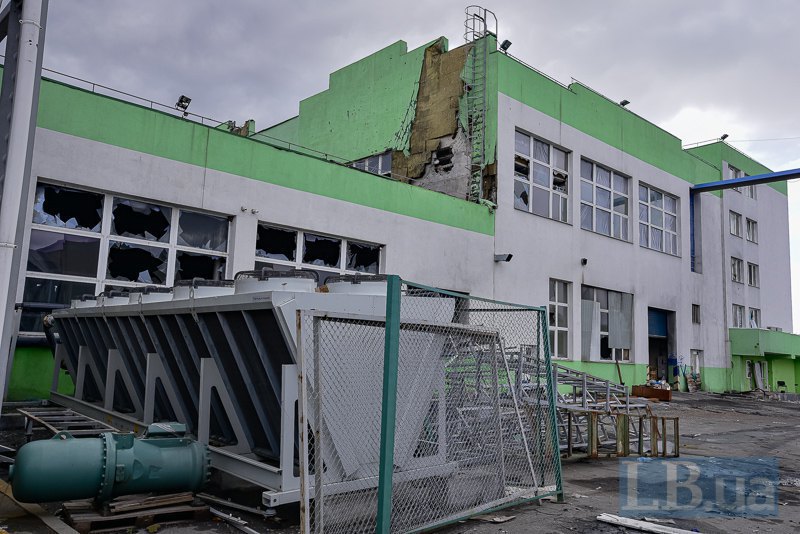
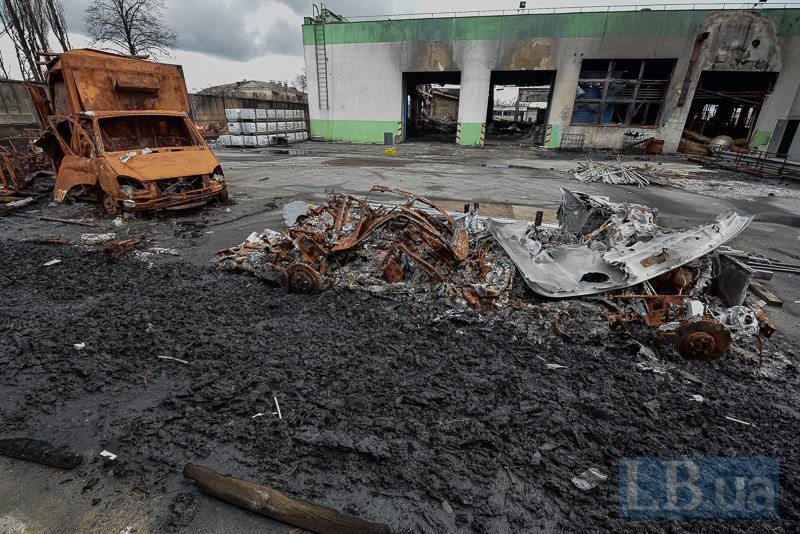
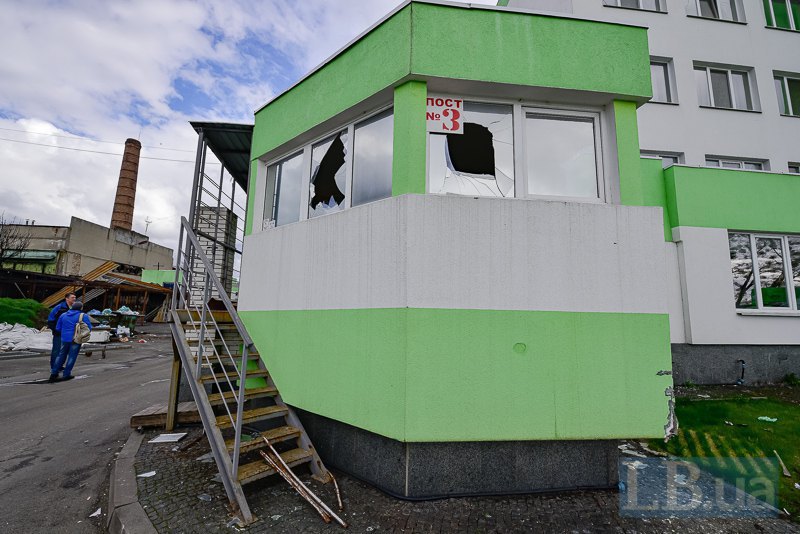
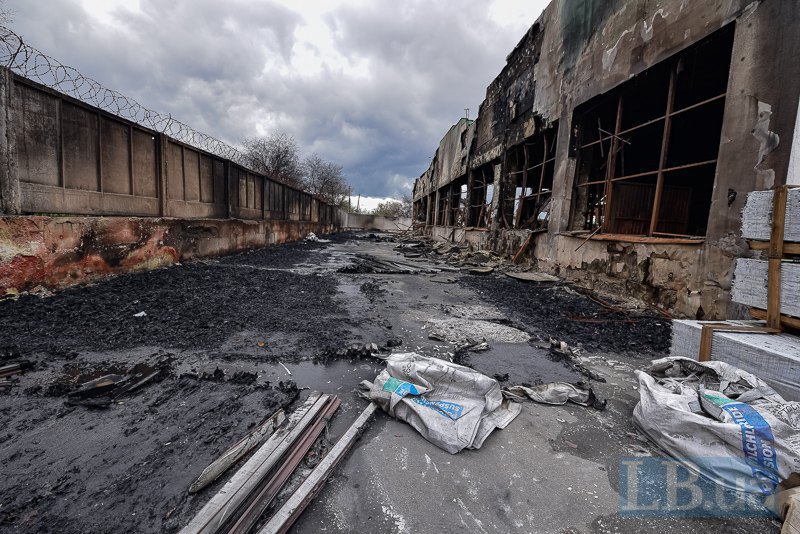
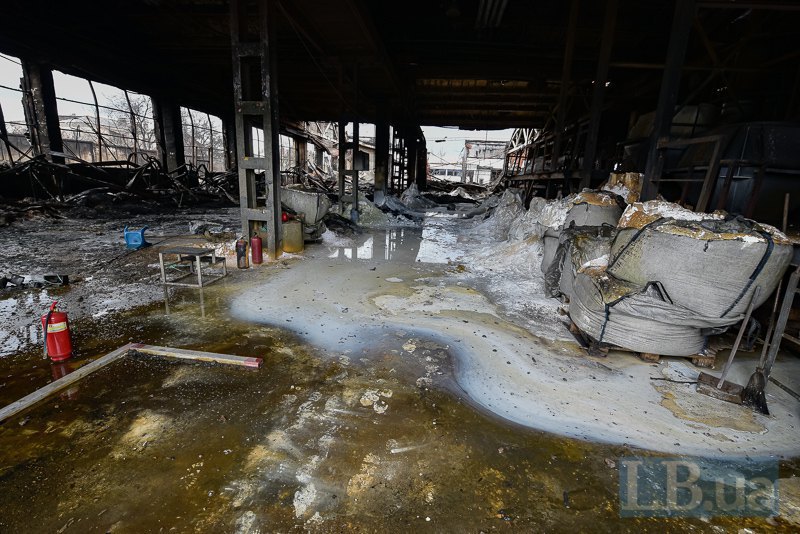
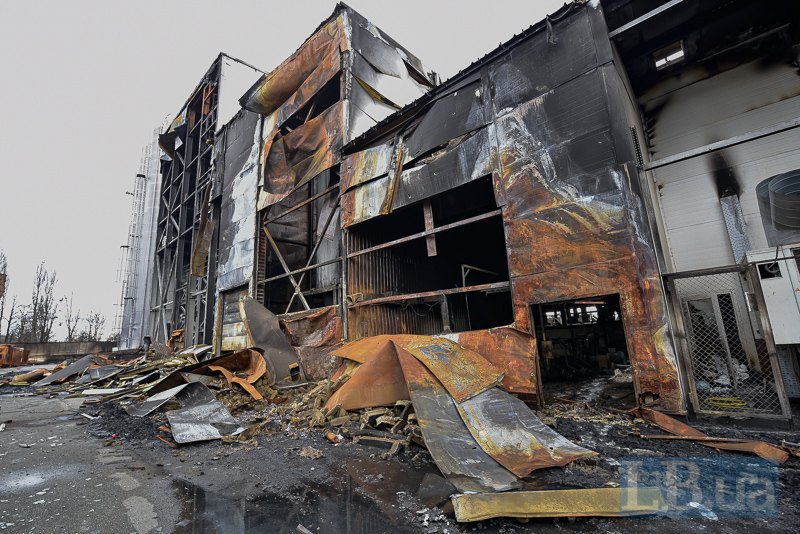
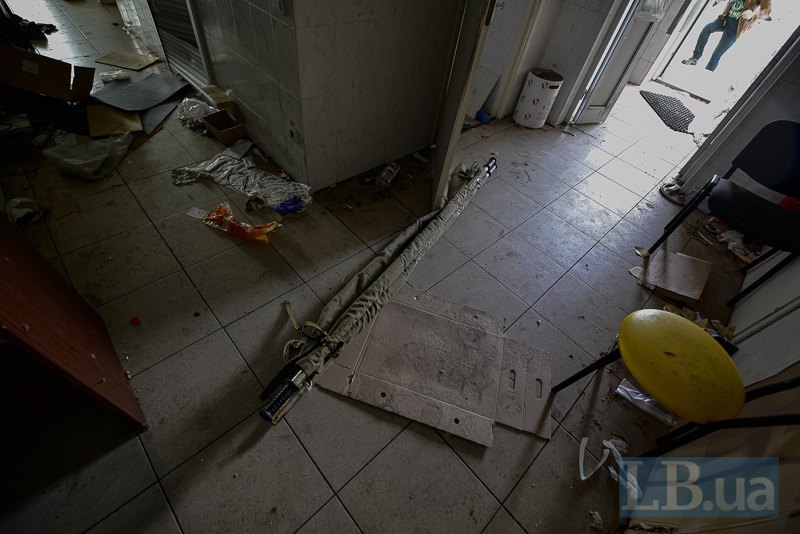
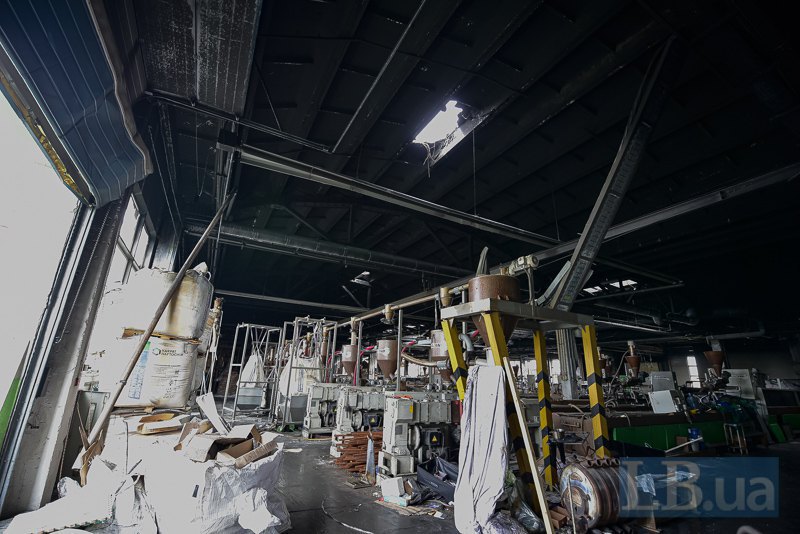
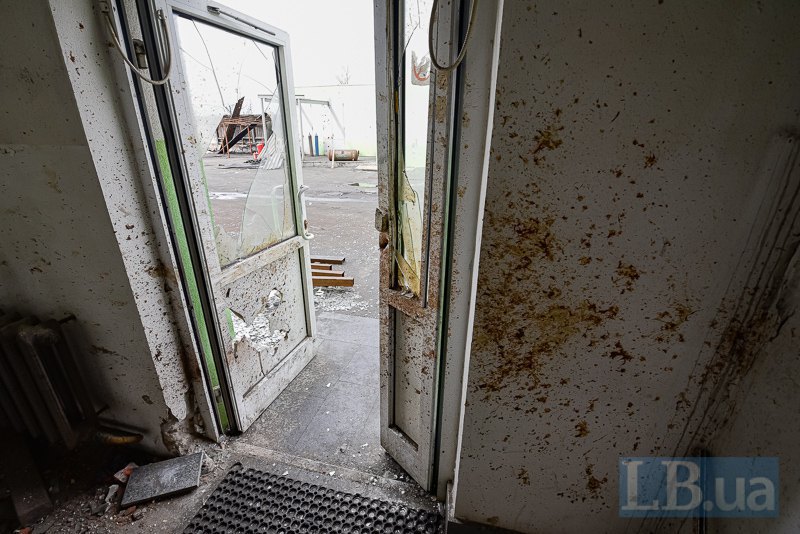
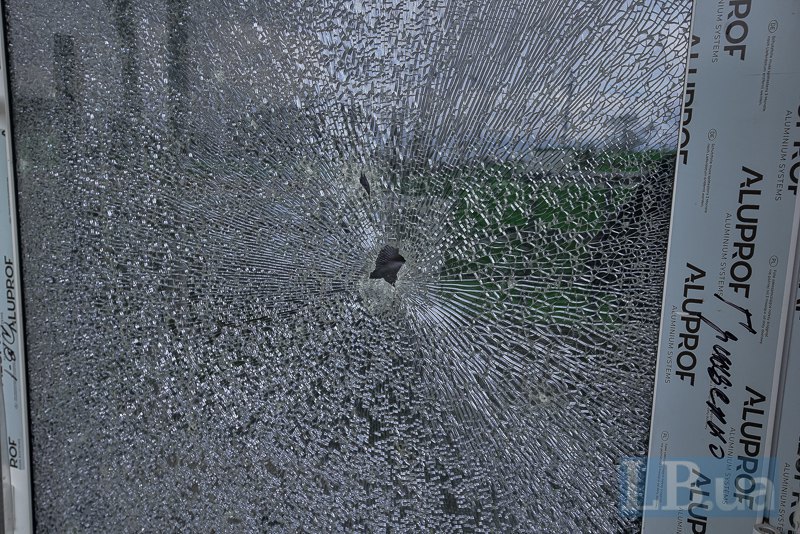
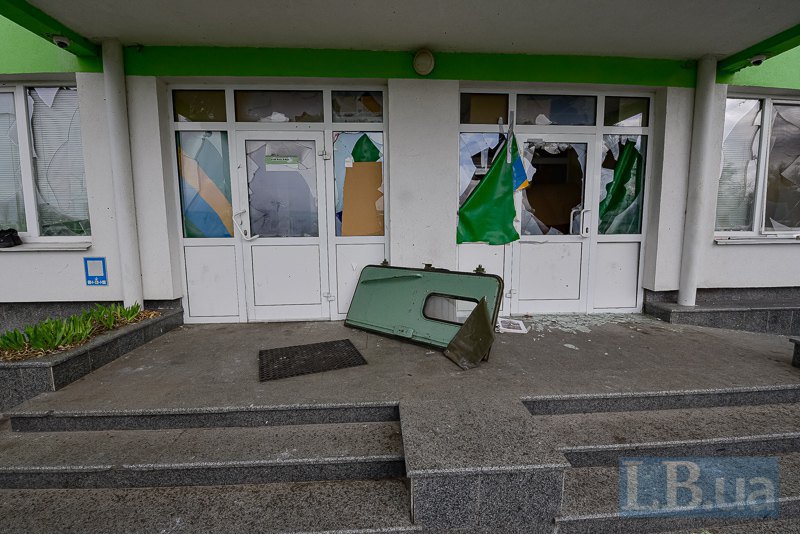
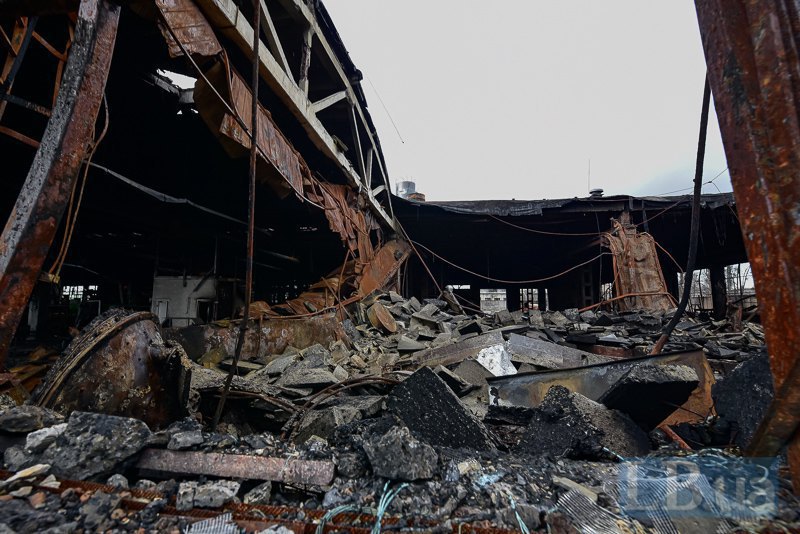
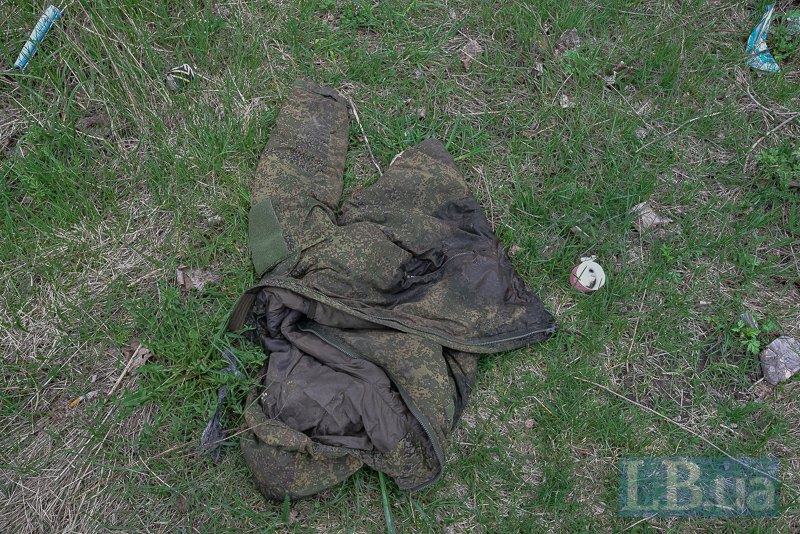
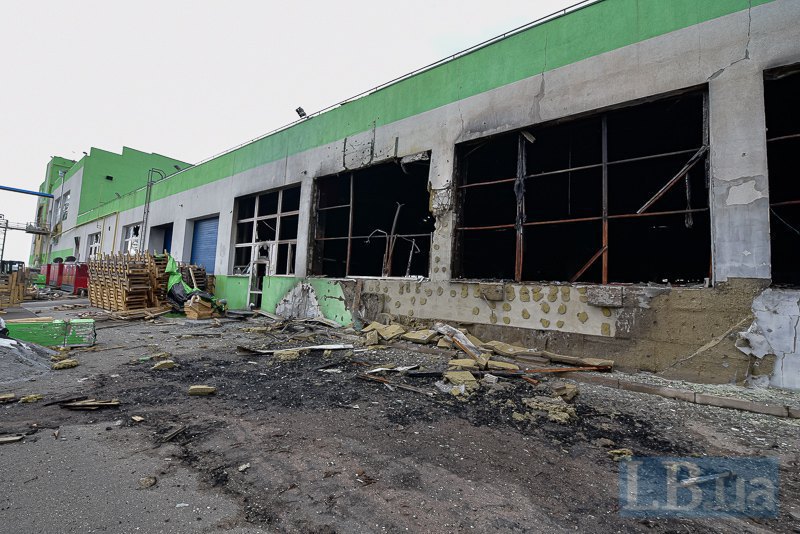
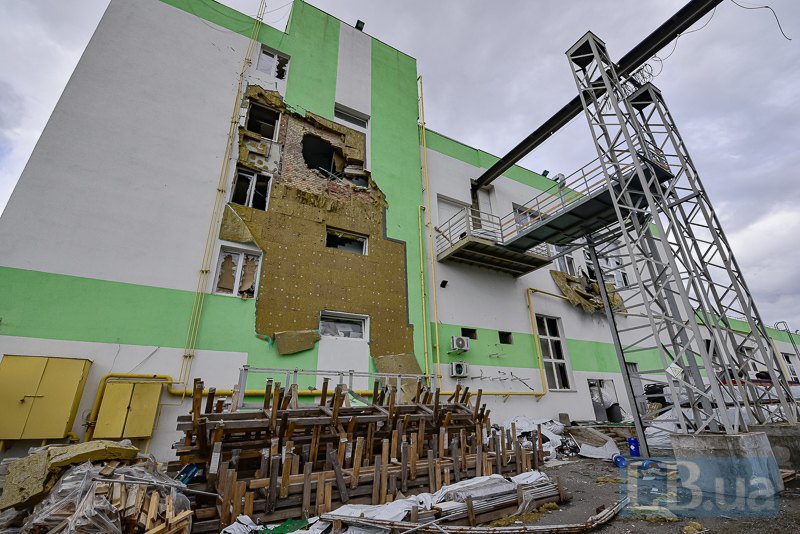
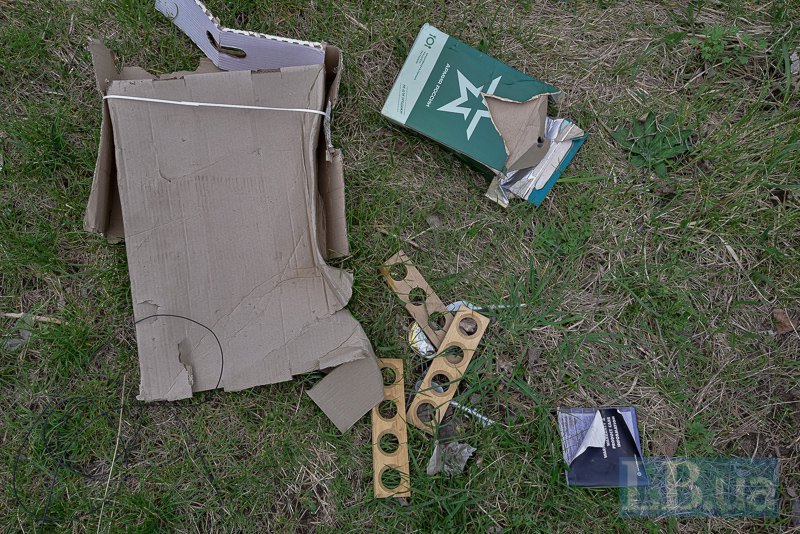
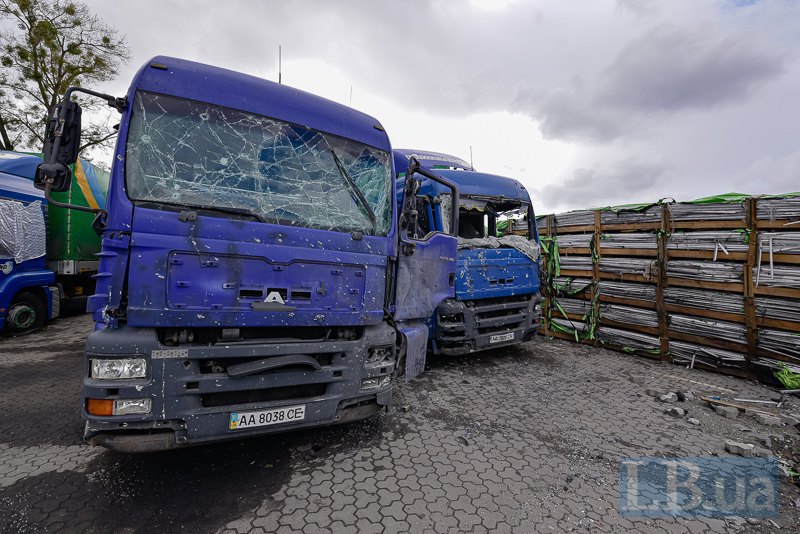
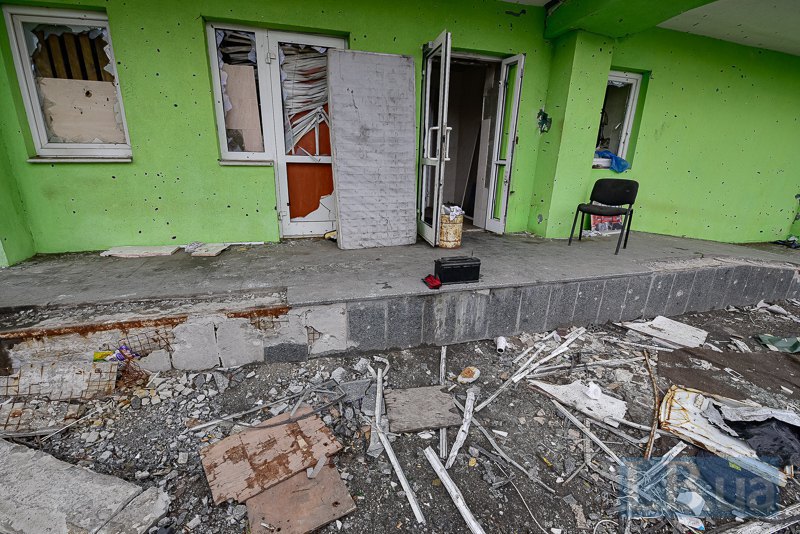
"I stole a Russian fuel truck and gave it to our 72nd Brigade"
A few days later, we found a man who had been released from captivity by Zhukov, the factory worker. It turned out that Valentyn had been taken prisoner because he had been betrayed by a neighbor, who told the russians that he had allegedly passed on to the Armed Forces of Ukraine the coordinates of russian military positions while driving a humanitarian aid through the enemy checkpoint.
"I was taken prisoner 700 meters from the house," he said. "And the neighbor left for russia."
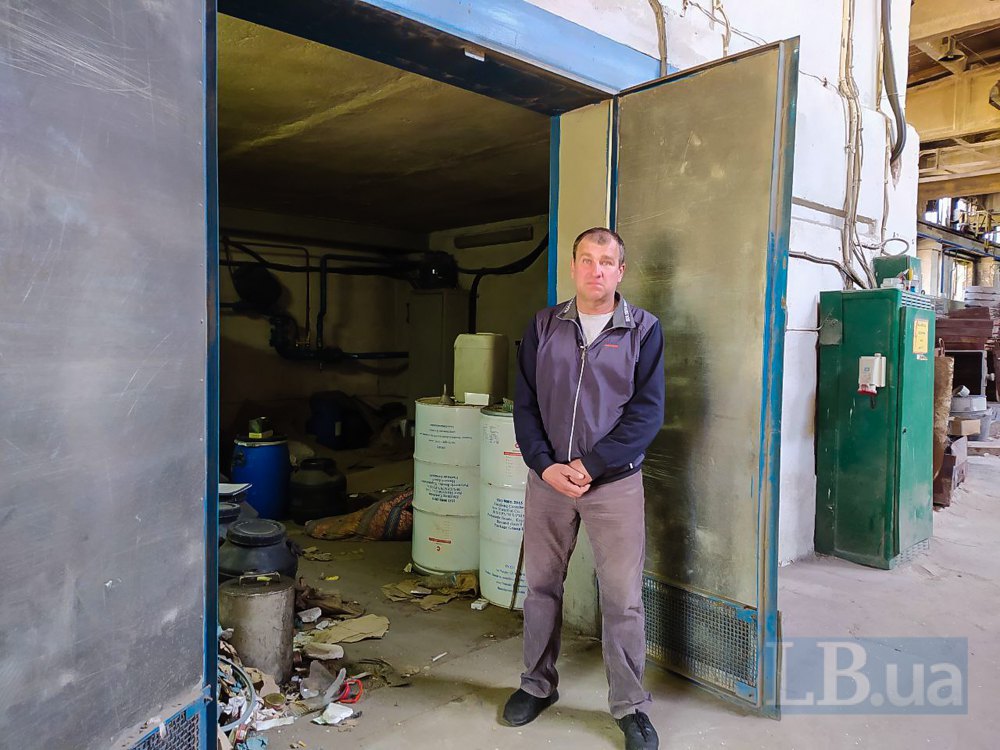
He says that the russians tied his hands with the sticky tape and blindfolded him, asked for the information about the Ukrainian soldiers, the location of weapons: "I was beaten hard for two days." We made a roll call in captivity and realized that there were 25 of us. They were held captive for nothing at all. One woman was captivated because they had found a toy drone in her house. And the father and son were beaten every day because they had an armored car. The russians thought they were transporting weapons. "
"But if they knew what I really did, they would shoot me right away. I stole a russian fuel truck and gave it to our 72nd Brigade. This happened back when the russians were approaching Dimer and our people were firing well at them, - adds Valentyn. - A neighbor came to me and said: "You once had such a 'Ural' [truck], then let's go, let's take it." I said, "Let's go!" We arrived in her car, I started the Ural and left. He drained the diesel fuel and brought it to the hospital, the retirement home in Yasnogorodka, and shared it with everyone who needed it. ”







